Headlines
- US President Trump reported a constructive phone call with President Xi of China.
United States
- Texas manufacturing activity strengthened sharply in November:
Production (notable pickup):
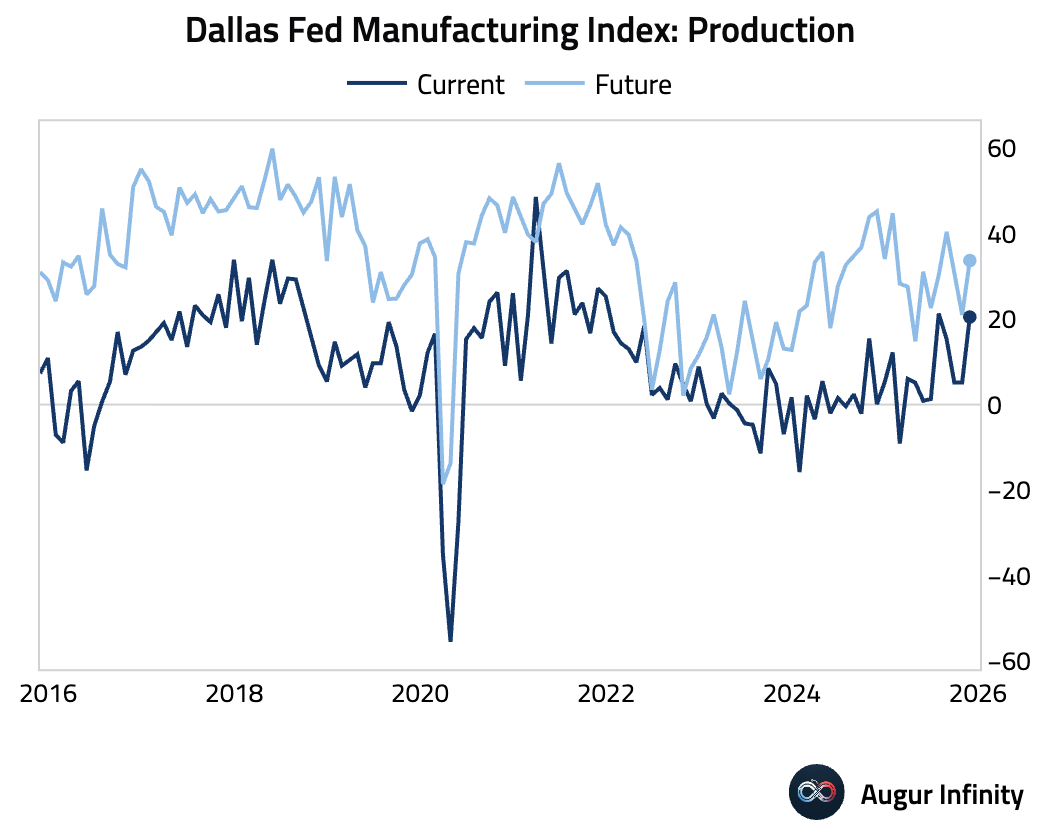
New orders (rose, particularly future expectations):
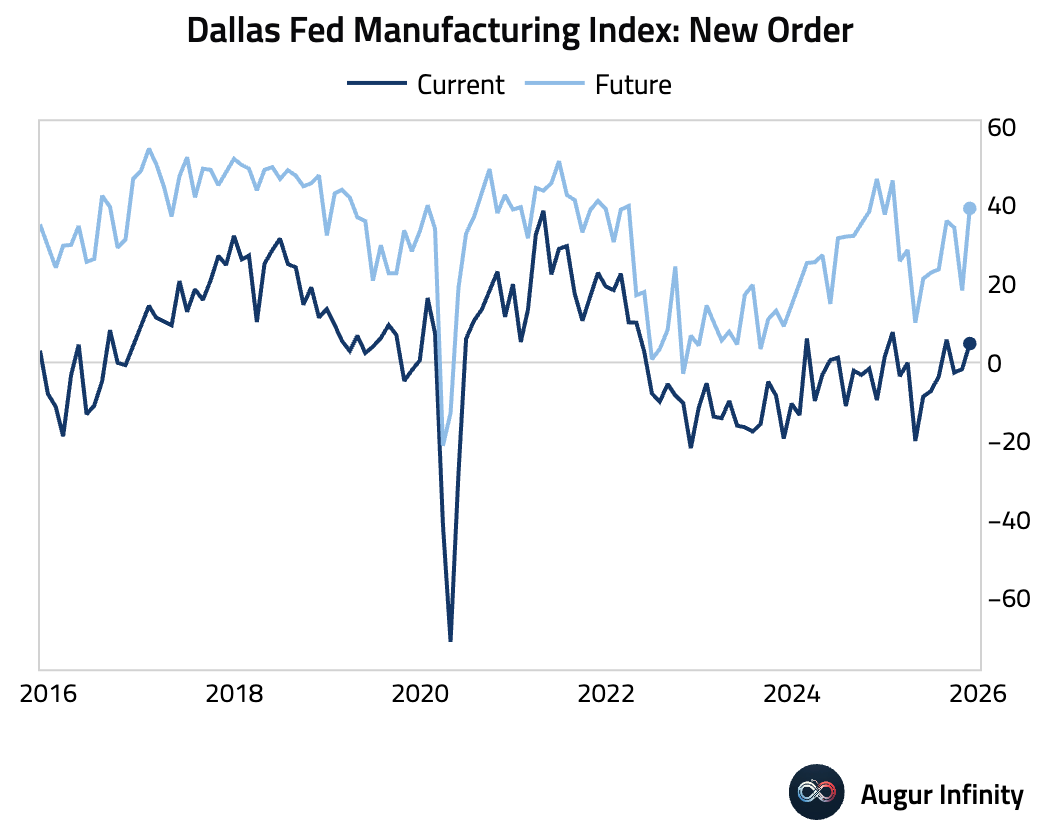
Employment (flat but improving outlook):
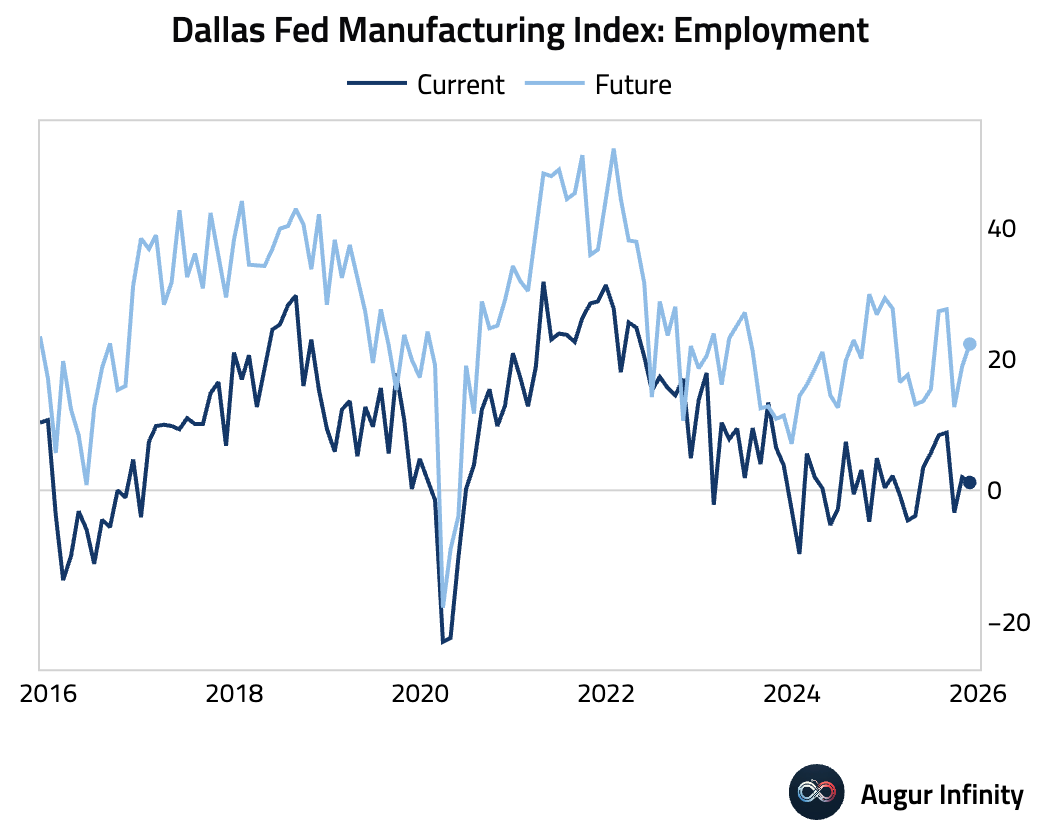
Price pressures (increased slightly but future expectations declined):
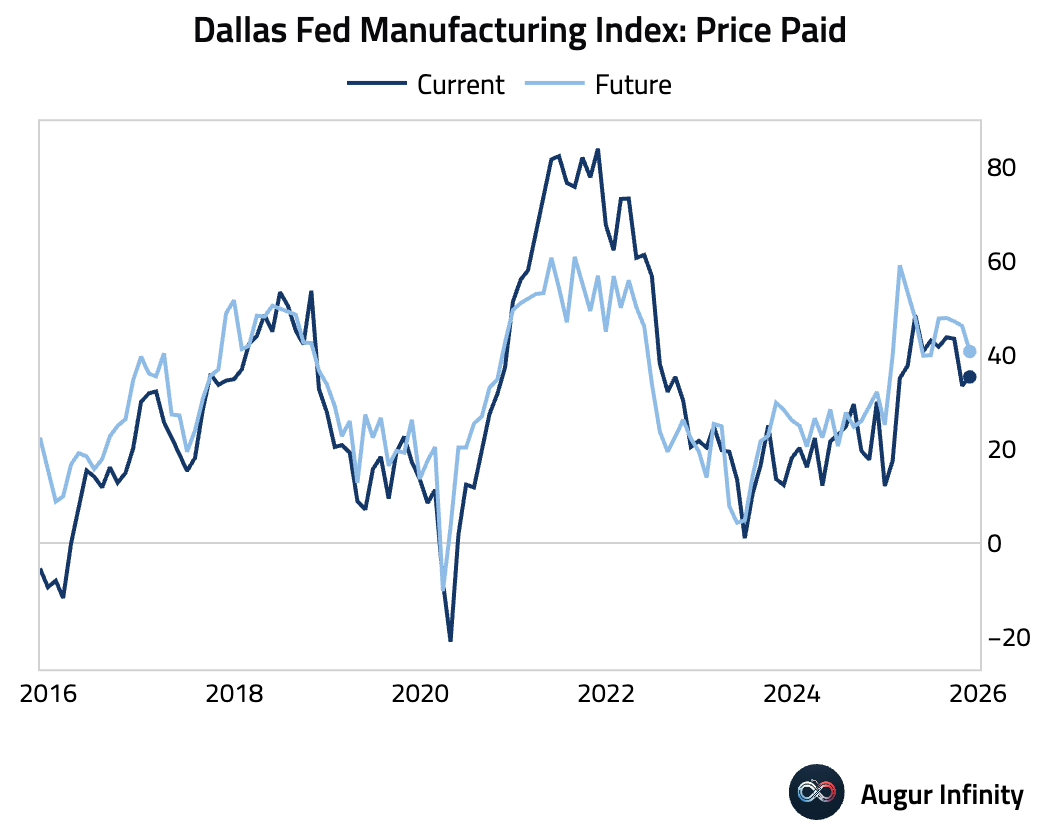
- The Chicago Fed’s real-time forecast of the unemployment rate was stable, remaining at 4.4% for both October and November after rounding.
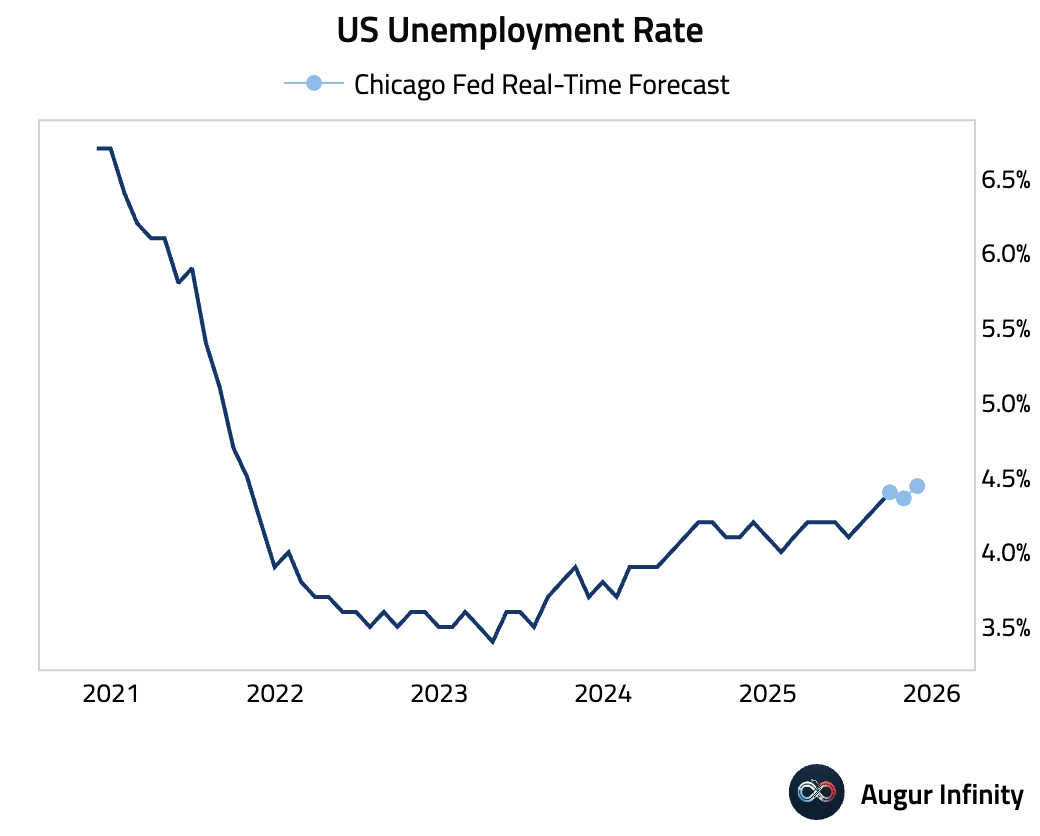
- The number of new entrants into the labor force has surged.
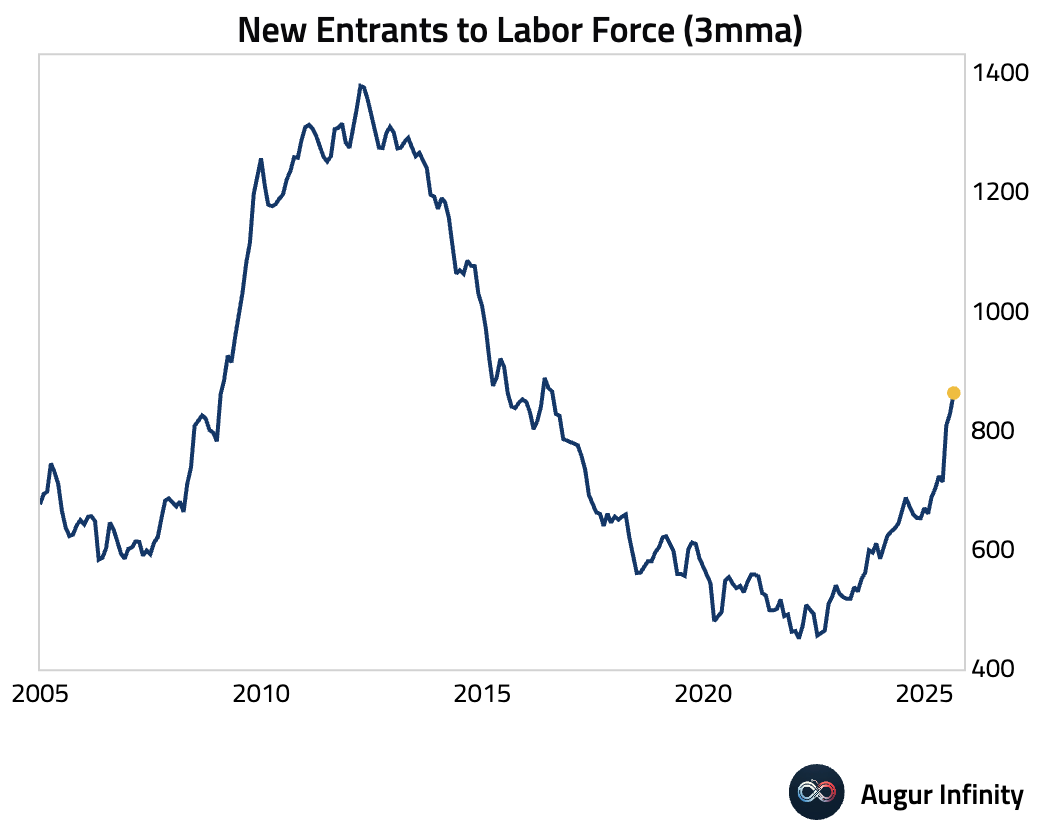
Source: Oxford Economics
- Financial conditions tightened this month, driven by falling equity prices, rising credit spreads, and a stronger dollar.
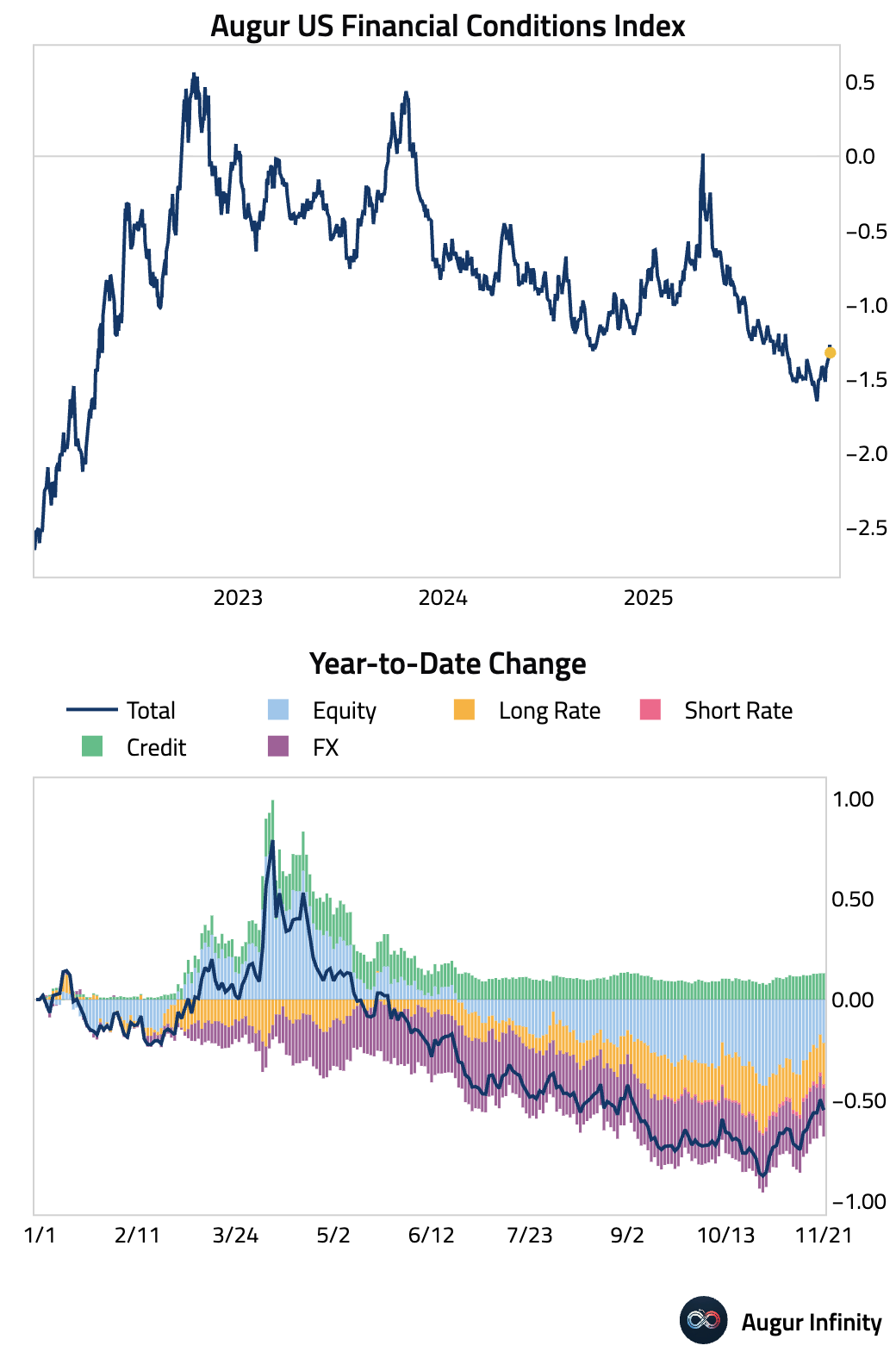
Canada
- Canadian manufacturing sales declined in October, partially reversing a strong gain from the prior month.
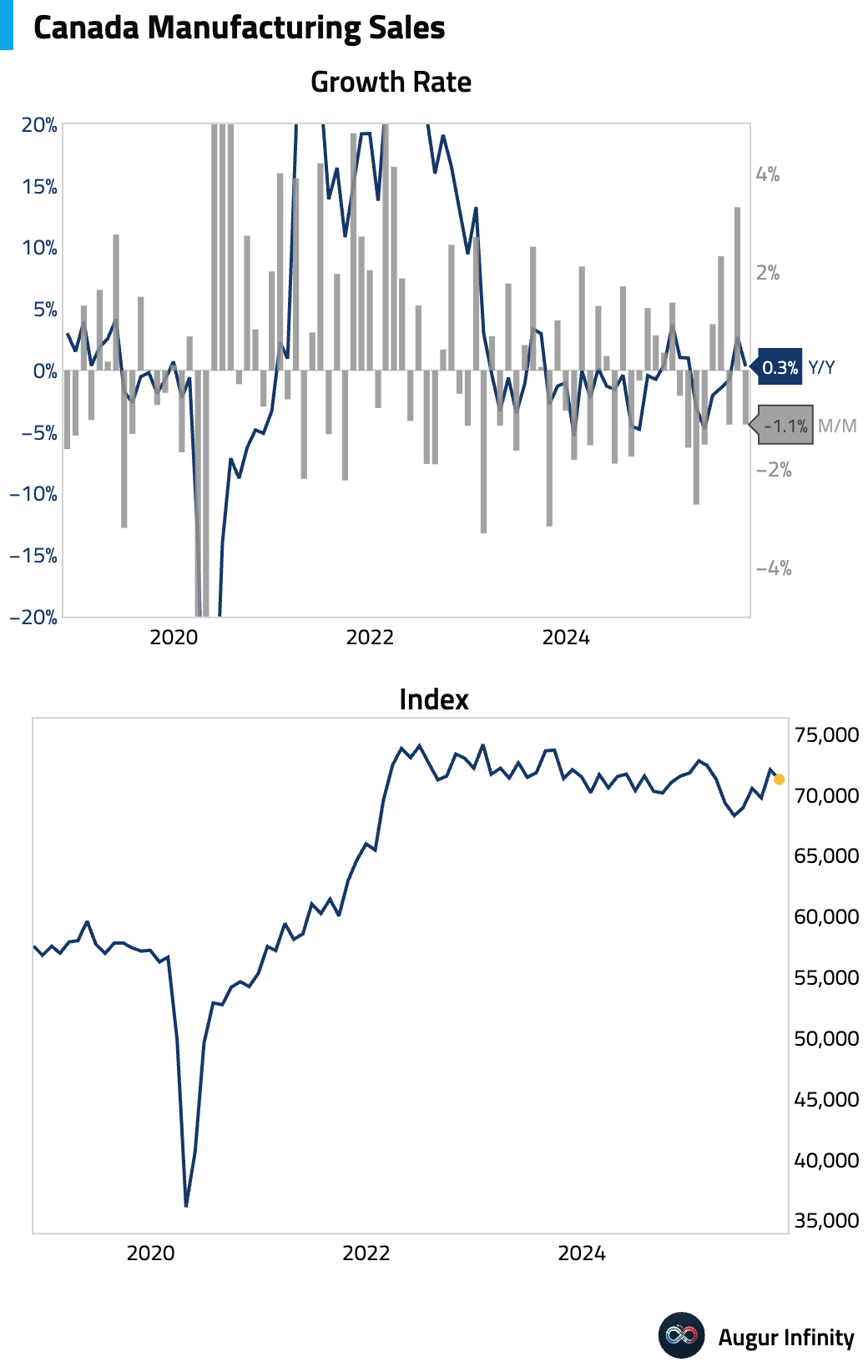
- Canada’s household wealth has risen to $17.5T. Canadians aged 65 and over now hold 35.8% of national net worth. Younger Canadians continue to lag, with those under 35 owning just 8.7% of the wealth.
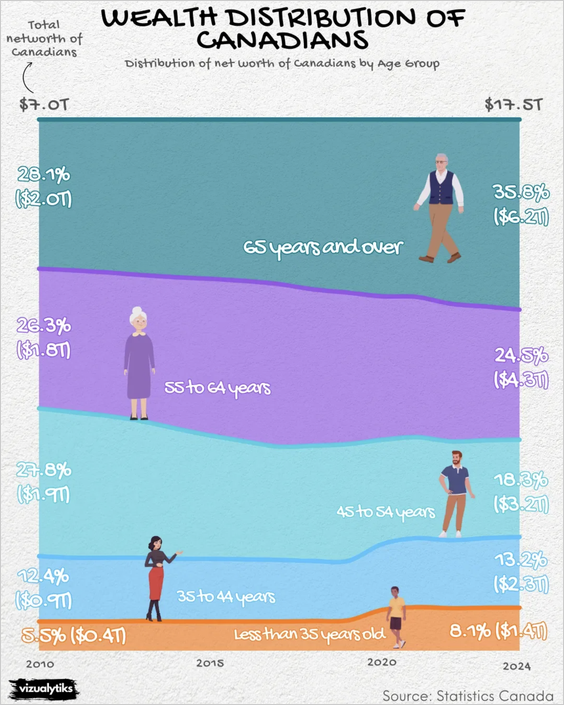
Source: Visual Capitalist
United Kingdom
- Bloomberg Economics estimates that Chancellor Reeves faces a £30 billion fiscal shortfall ahead of next week’s UK budget.
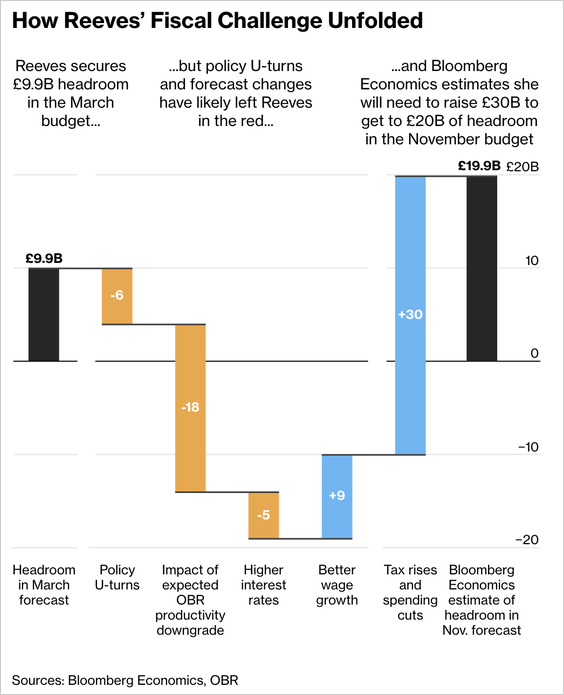

Source: @economics
- Britain’s tough austerity in the 2010s has slashed support for the poorest households, while also leaving top earners with income losses.
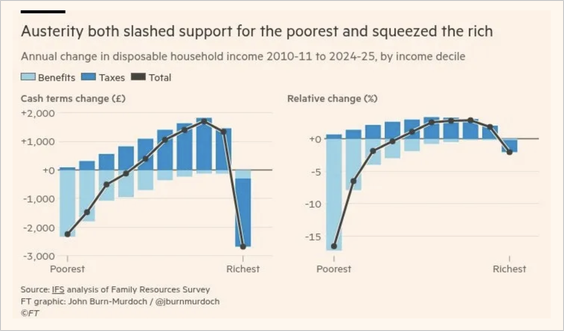
Source: @financialtimes
Domestic investors have withdrawn a record amount from London-listed equities this year.
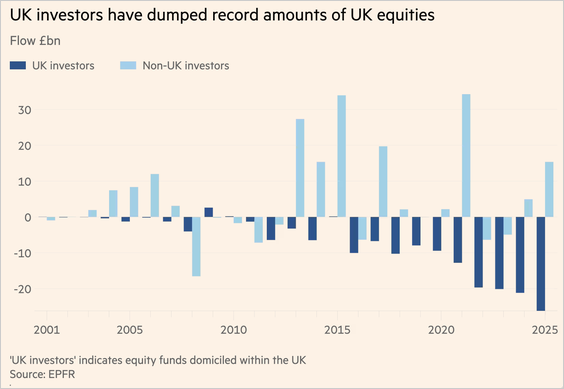

Source: @financialtimes
The Eurozone
- Germany’s Ifo Business Climate index unexpectedly edged down and missed consensus, as a weaker outlook overshadowed a slight improvement in current conditions.
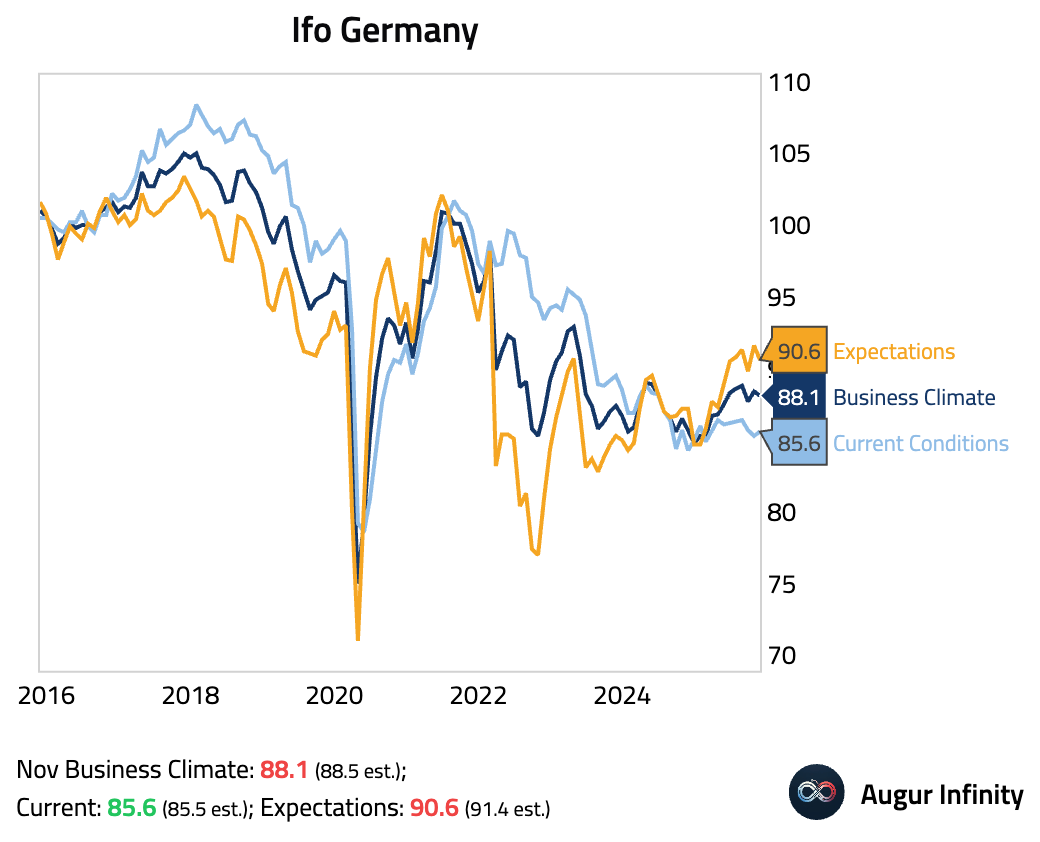
Interactive chart on Augur Infinity
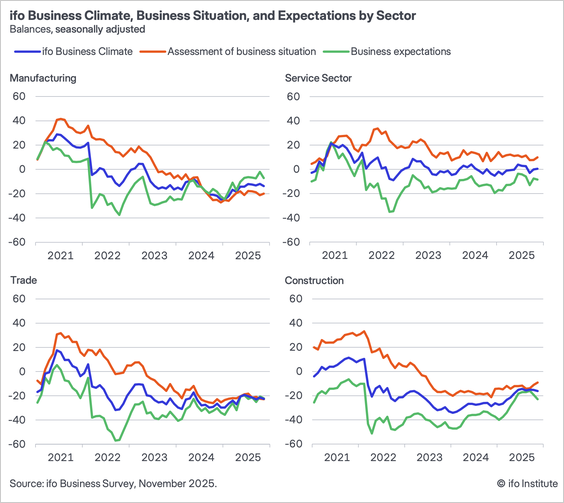
Source: ifo Institute
- Moody’s upgraded Italy’s sovereign rating for the first time since 2002, raising it to Baa2 with a stable outlook. The upgrade reflects improved political stability and fiscal consolidation.
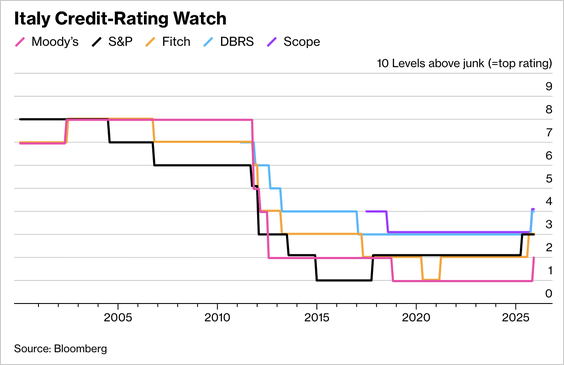

Source: @economics
- Belgian business confidence improved more than expected in November, rising from the prior month.
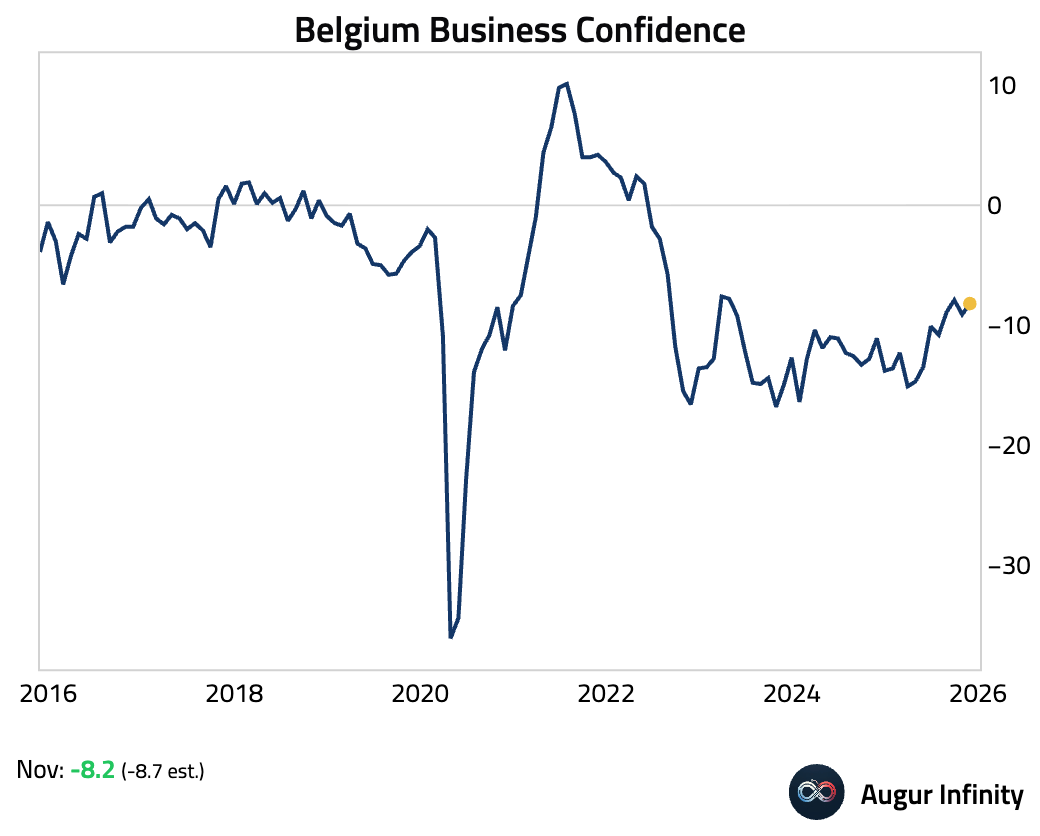
Interactive chart on Augur Infinity
Europe
- Norway’s loan growth remained stable.
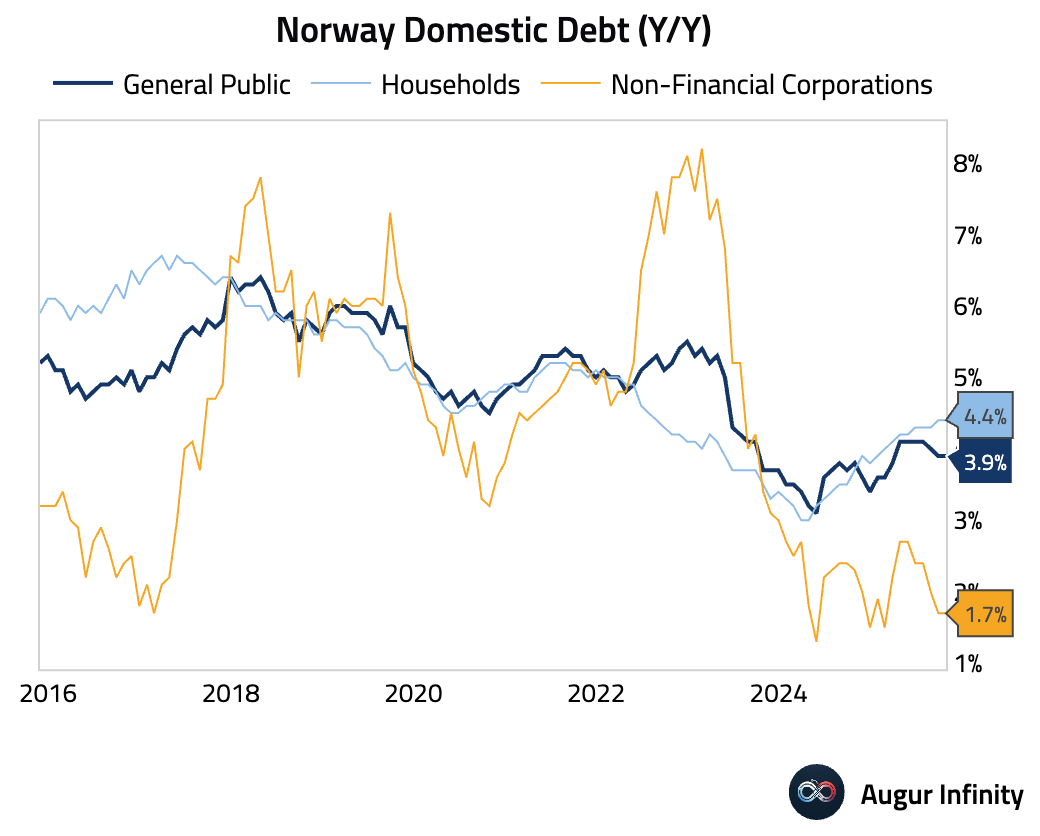
Interactive chart on Augur Infinity
- Swiss job growth stalled year over year and continued to contract quarter over quarter.
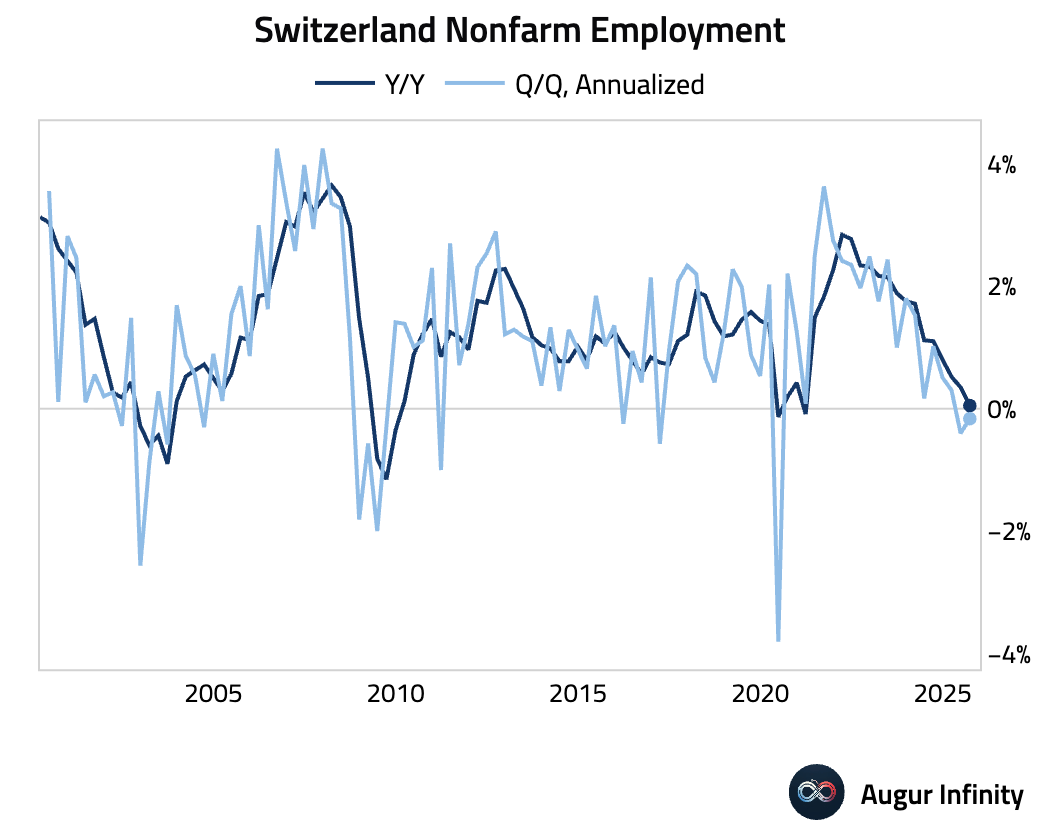
- In the Czech Republic, consumer and business sentiment diverged in November. Business confidence declined, while consumer confidence rose to its highest level since December 2019.
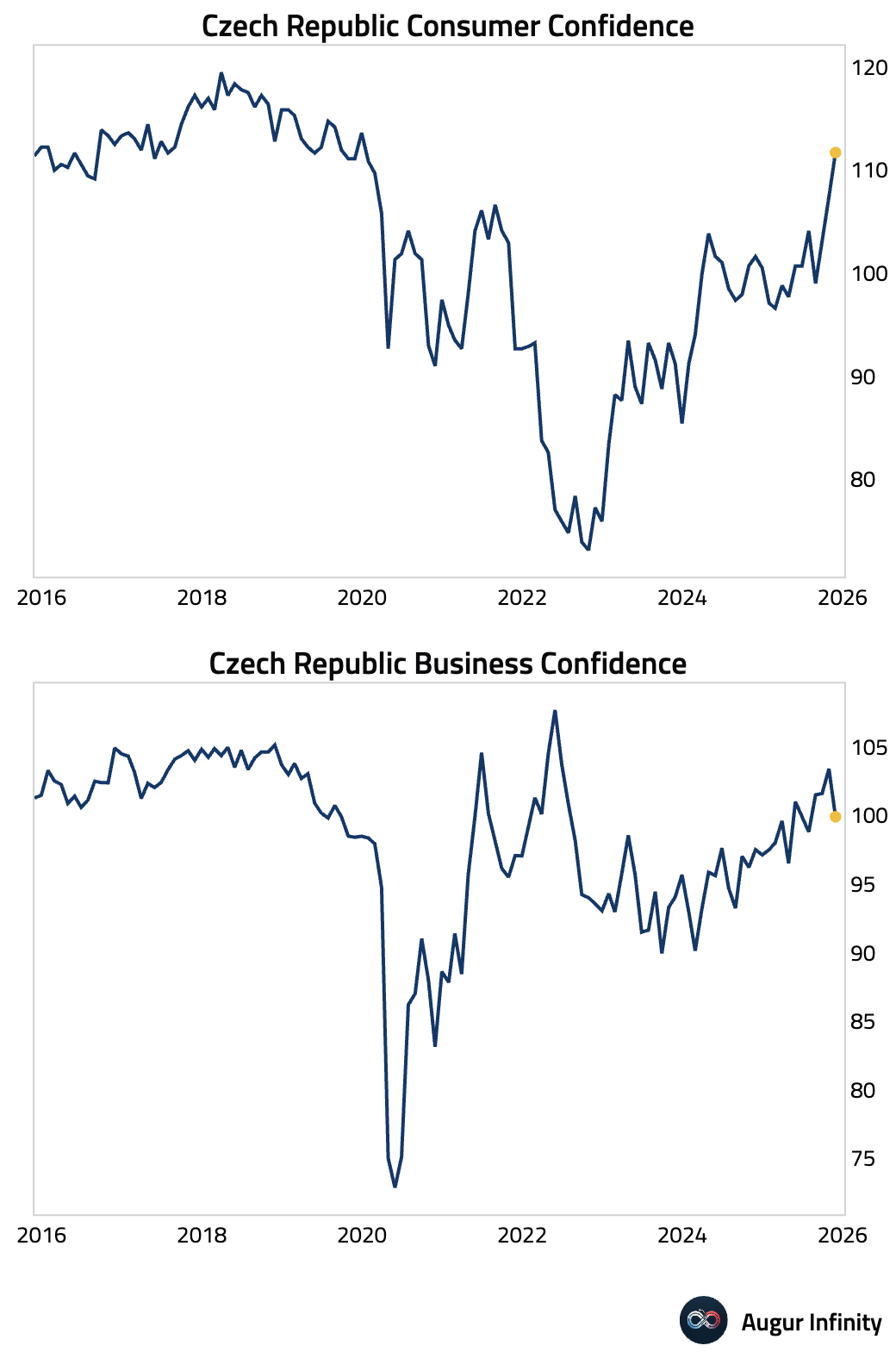
Interactive chart on Augur Infinity
- Poland’s industrial production growth slowed but beat expectations.
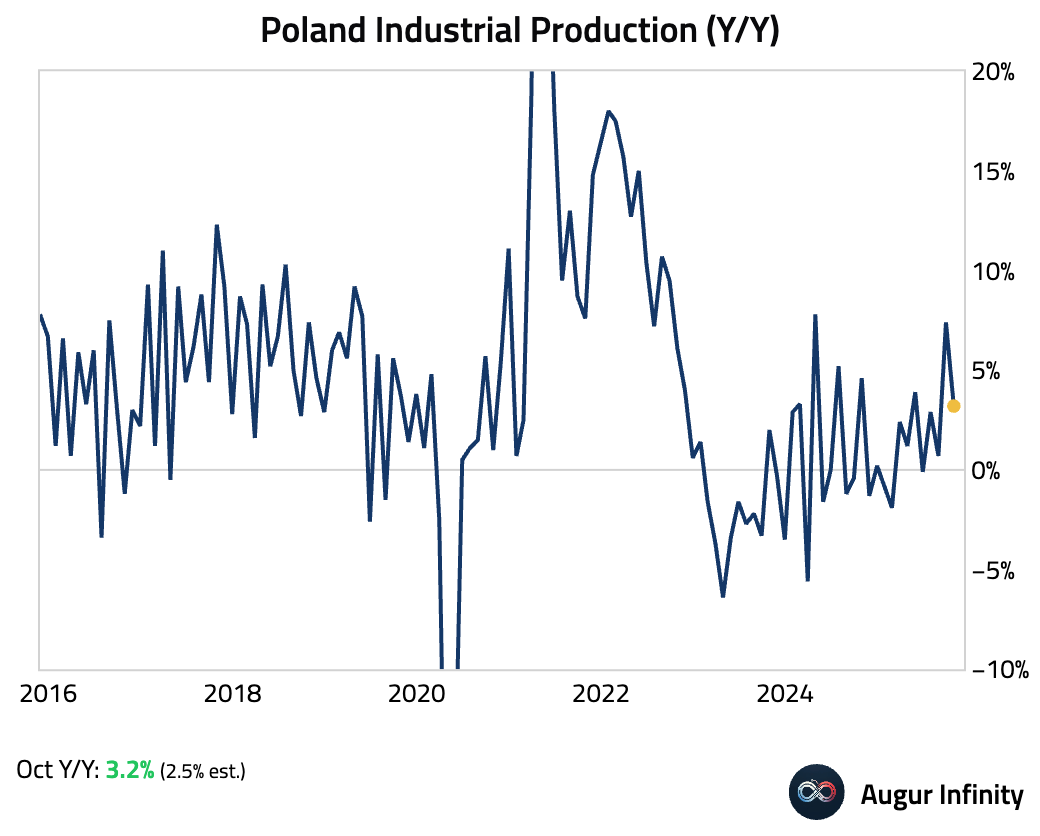
Employment in Poland’s corporate sector continued to contract year over year.
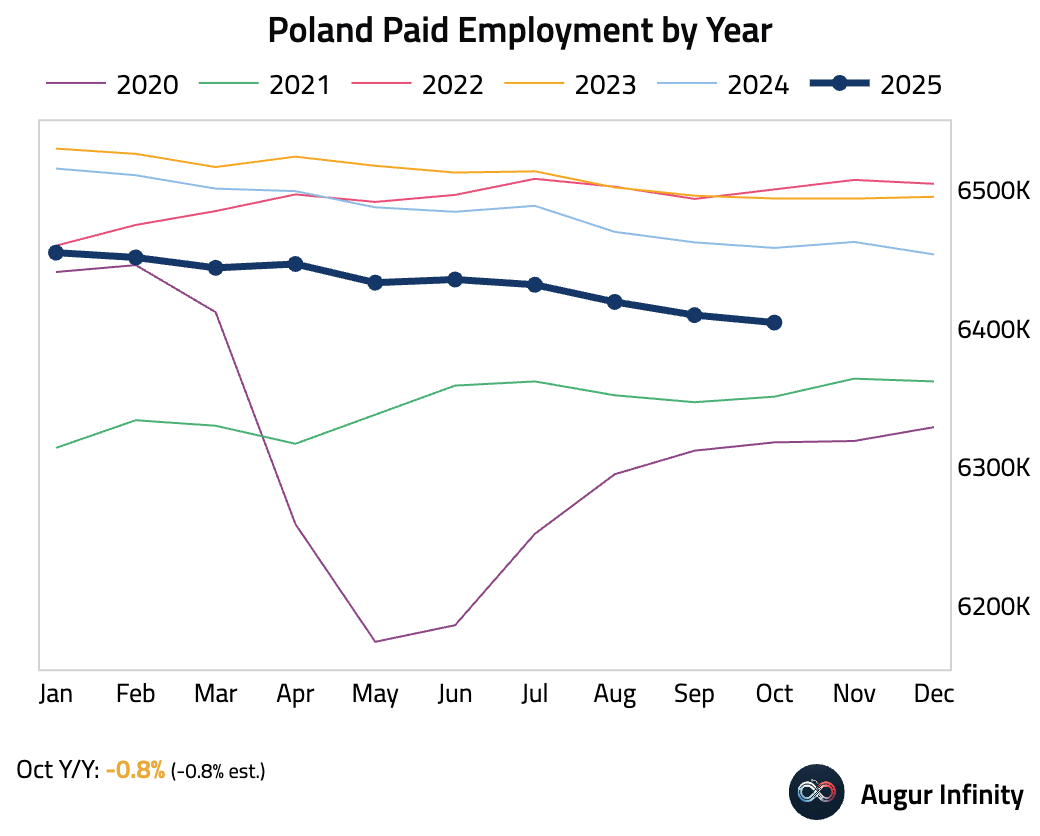
Wage growth slowed more than expected.
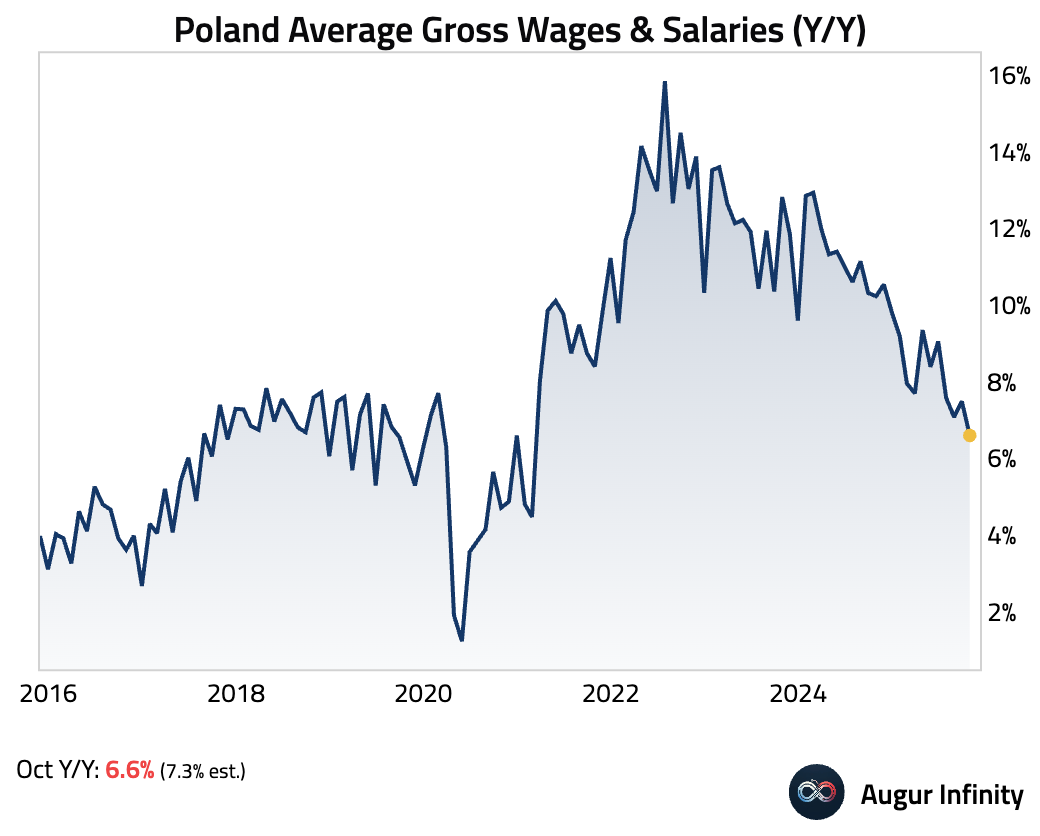
Polish producer prices declined at a faster pace, indicating intensifying disinflationary pressures at the factory gate.
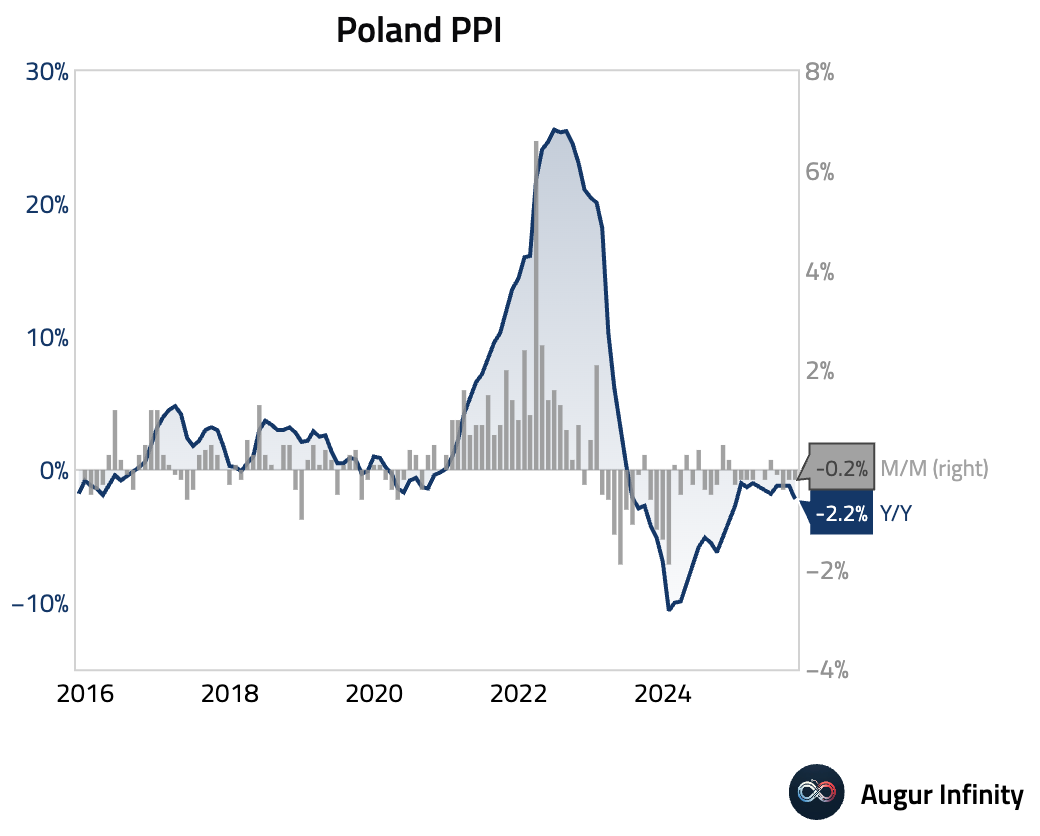
Japan
- Open interest in front-month government bond futures is at its highest since September 2024, and the simultaneous drop in futures prices points to growing short positioning.
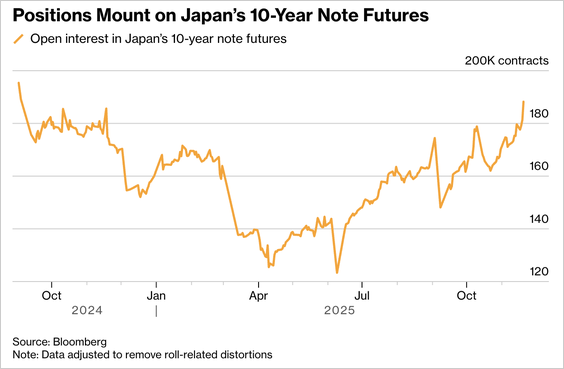
Source: @markets
- The yen in real effective terms is almost as weak as the Turkish lira, the world’s weakest currency.
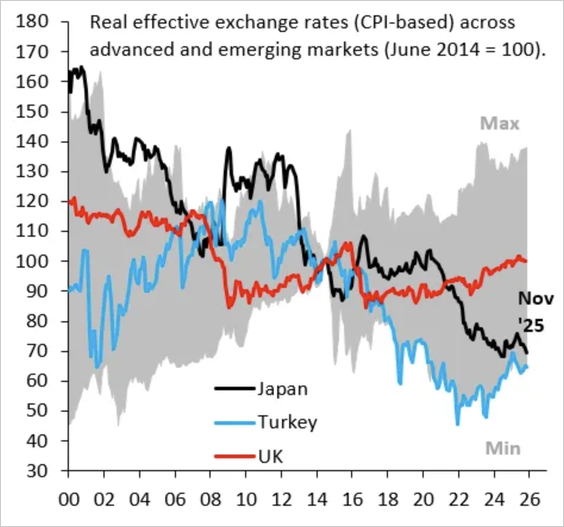
Source: Robin Brooks
- The front-month yen futures contract is approaching long-term support—a level where previous risk-off episodes, such as the carry trade unwind, have occurred.
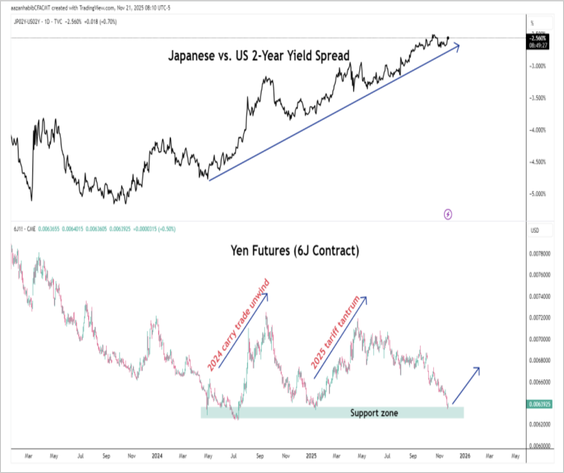
Source: Paradigm Capital
Asia-Pacific
- Singapore’s inflation accelerated in October. The surge was driven by services inflation, particularly in healthcare and holiday travel.
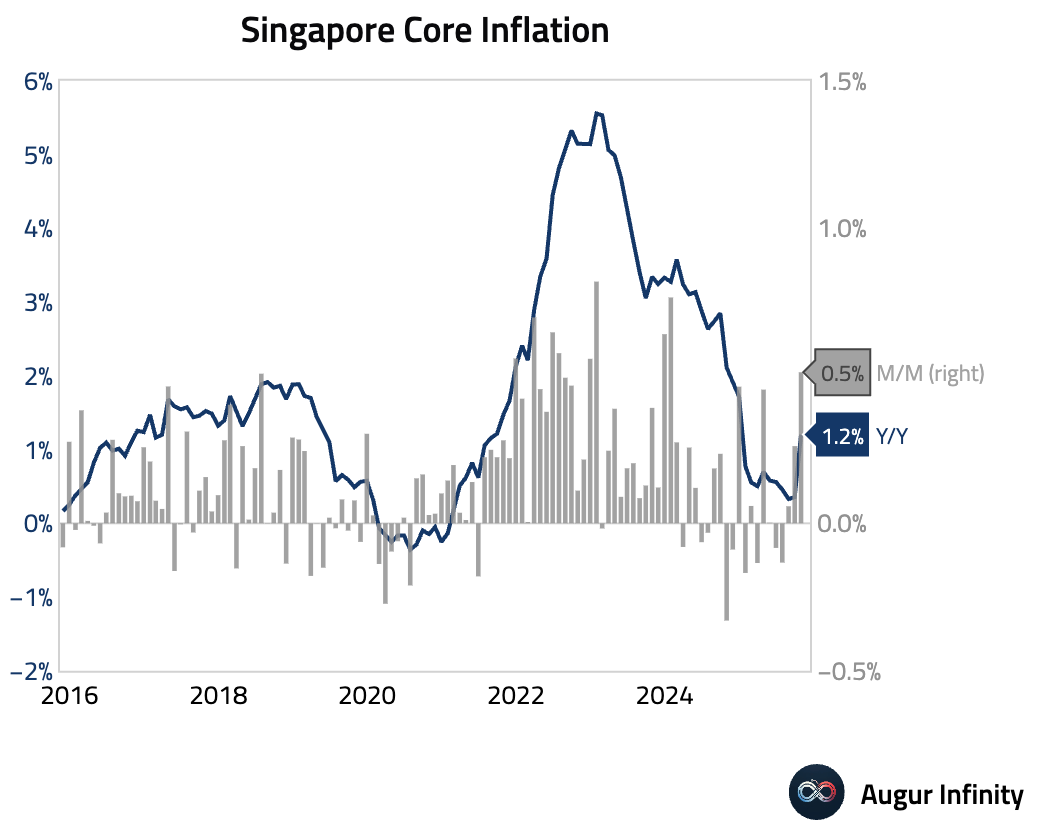
- Taiwan’s unemployment rate edged down to its lowest level in 25 years.
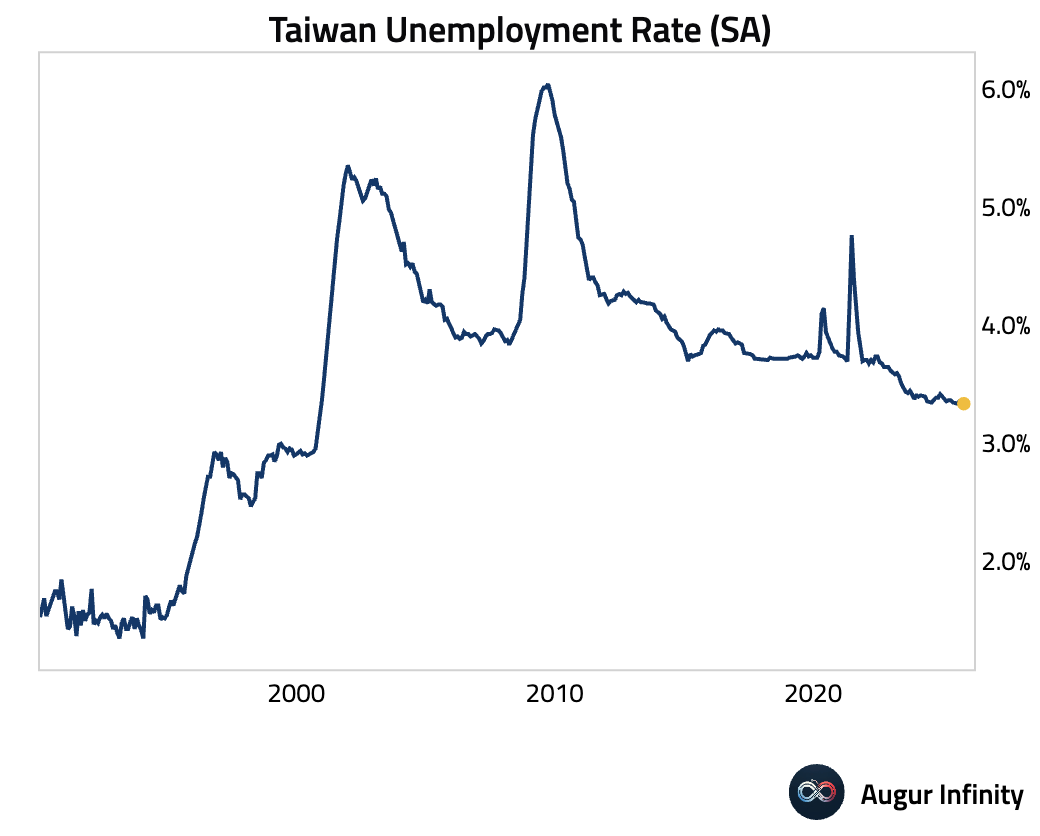
China
- The Shanghai Composite Index slipped below its 50-day moving average.
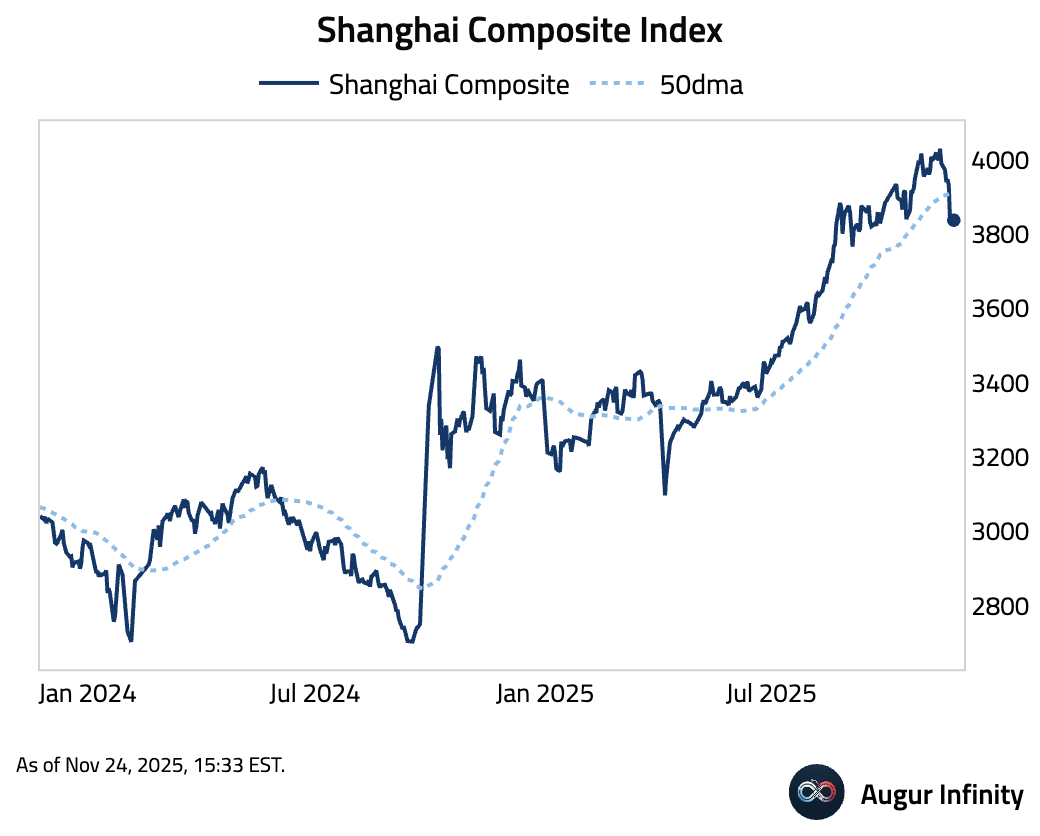
India
- The Indian rupee rebounded after the RBI intervened to counter Friday’s slide to a record low.
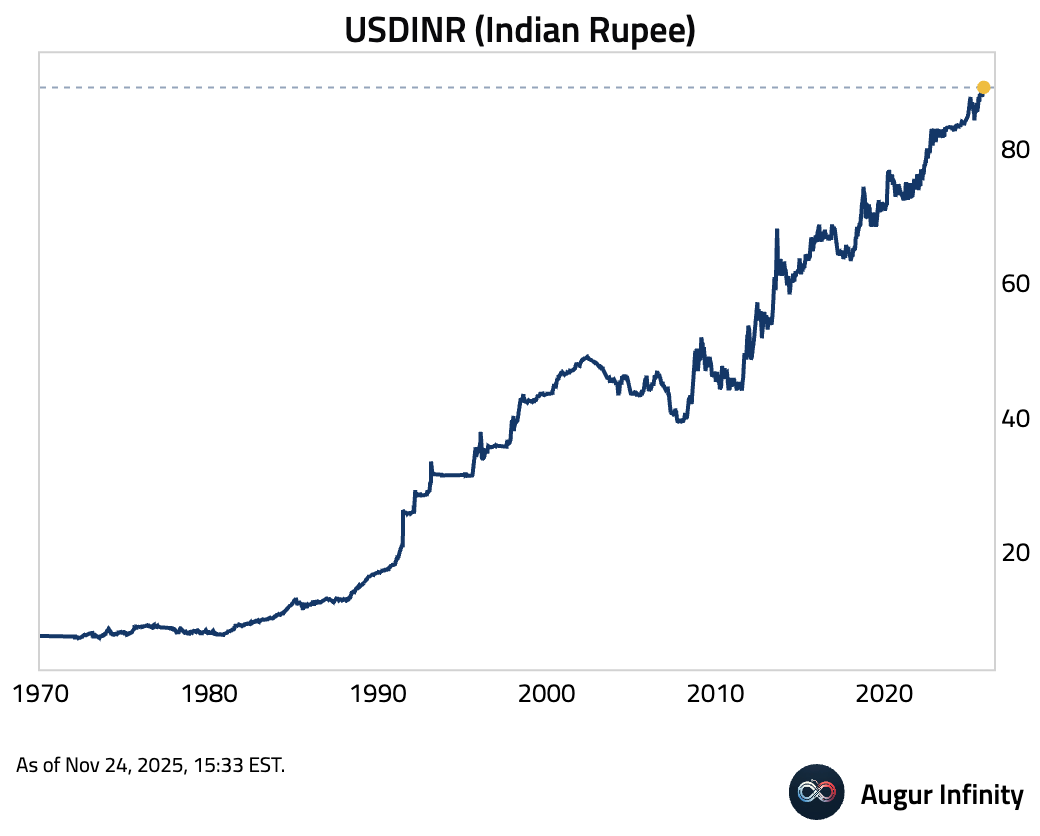

Source: @markets
Here’s the trade-weighted real effective exchange rate.
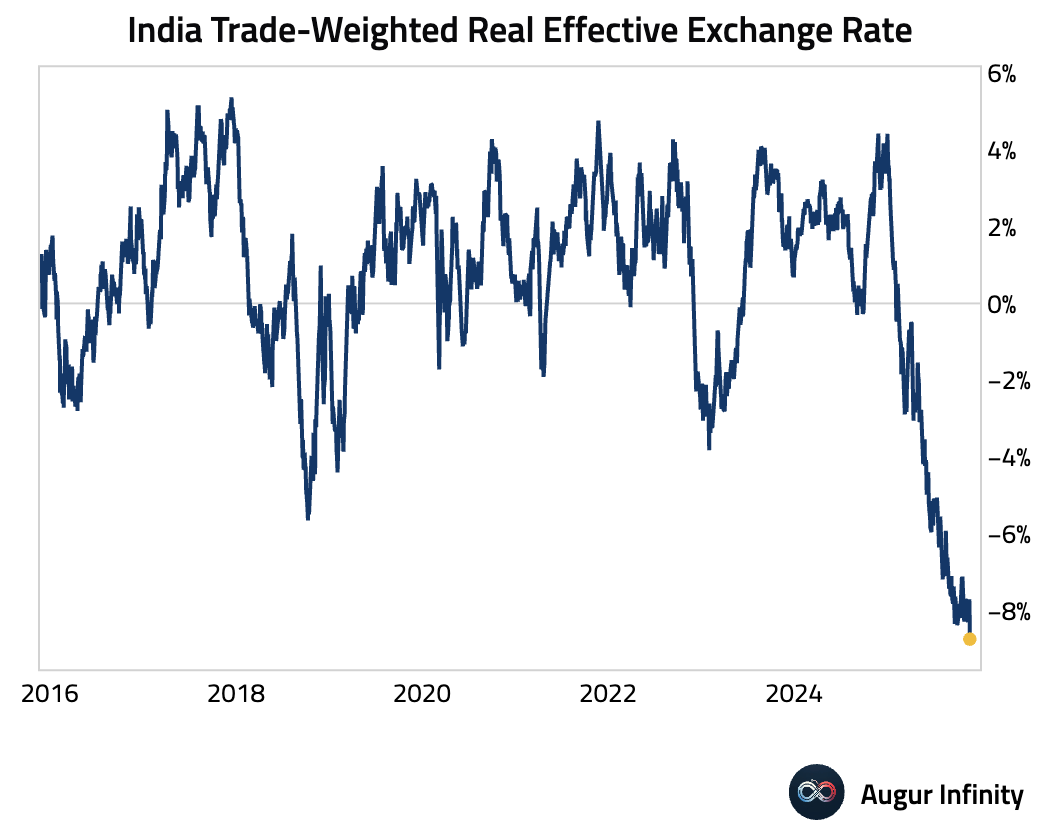
Emerging Markets
- Brazilian consumer confidence rose for a third consecutive month in November, driven by improvements in both current conditions and future expectations.
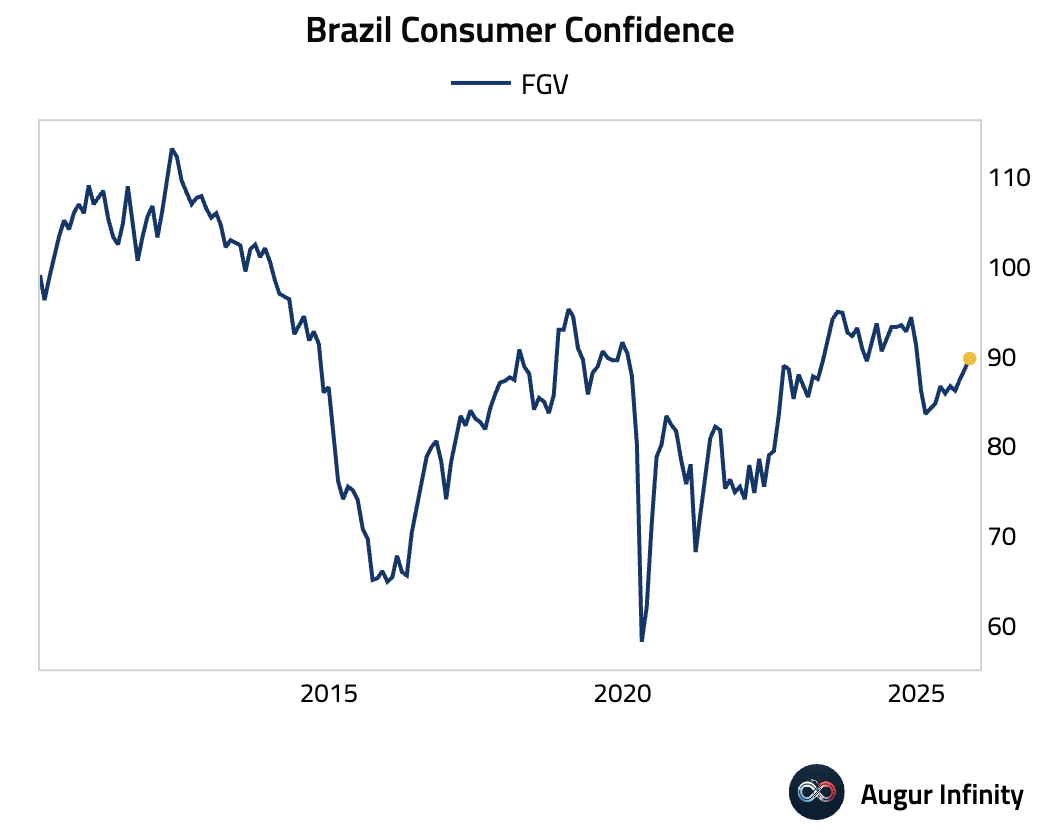
- Mexico’s mid-November headline inflation was hotter than consensus, driven by a surge in electricity tariffs as summer subsidies ended. Core inflation was slightly softer than forecasts, as weak core goods prices linked to “Black Friday” promotions offset sticky services inflation.
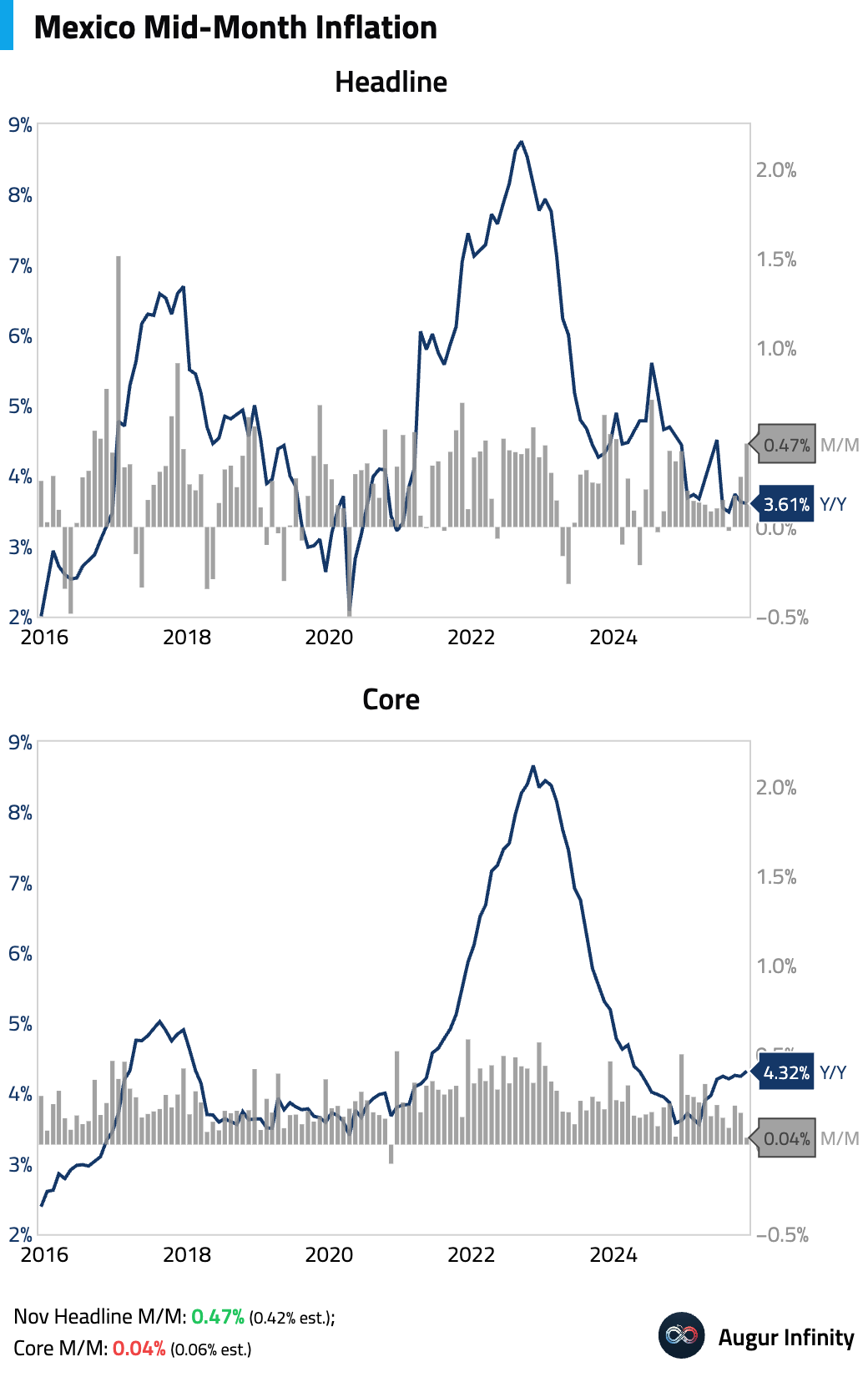
Interactive chart on Augur Infinity
- Turkey’s reported business confidence was unchanged in November but rose on a seasonally-adjusted basis.
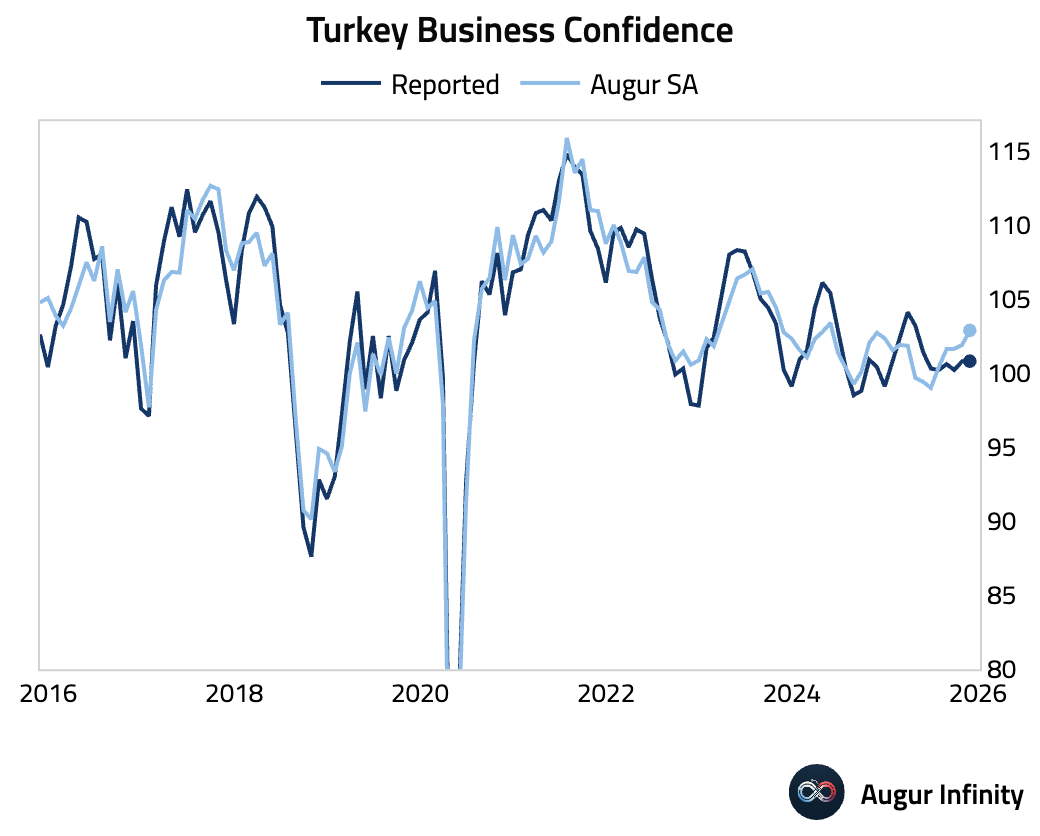
Capacity utilization edged higher.
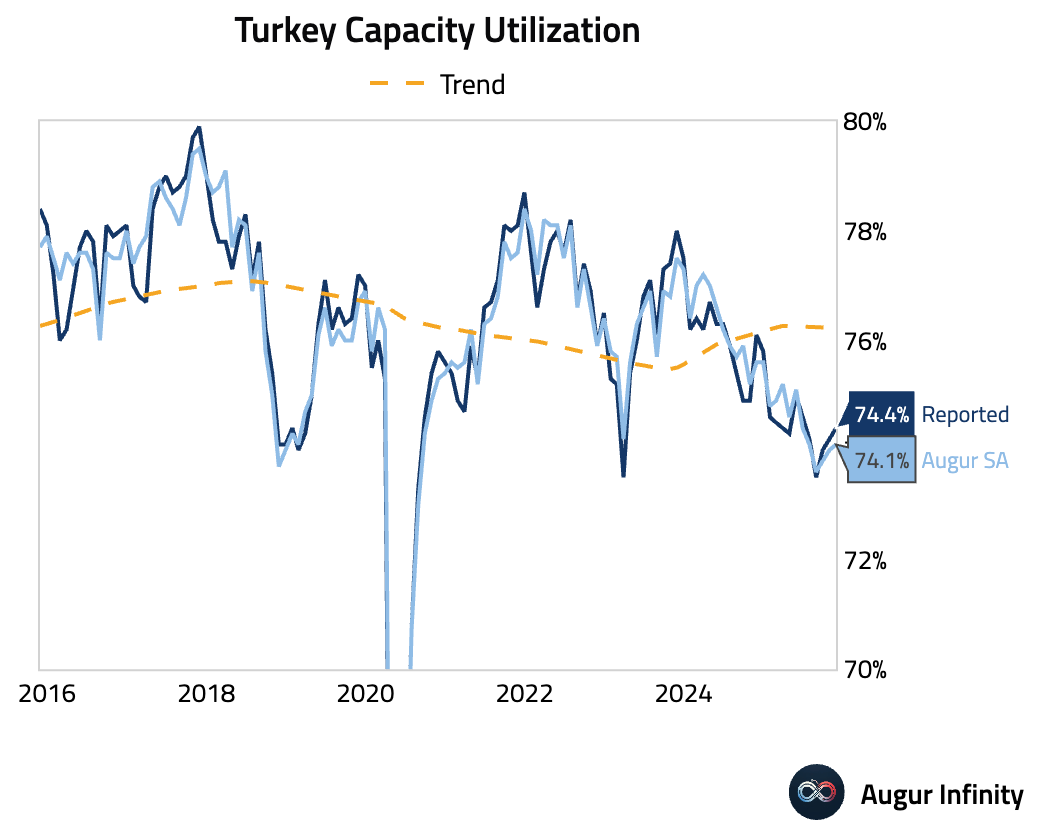
- The Philippine PSEi crossed above its 50-day moving average on Friday, and after a volatile morning, continued highert.
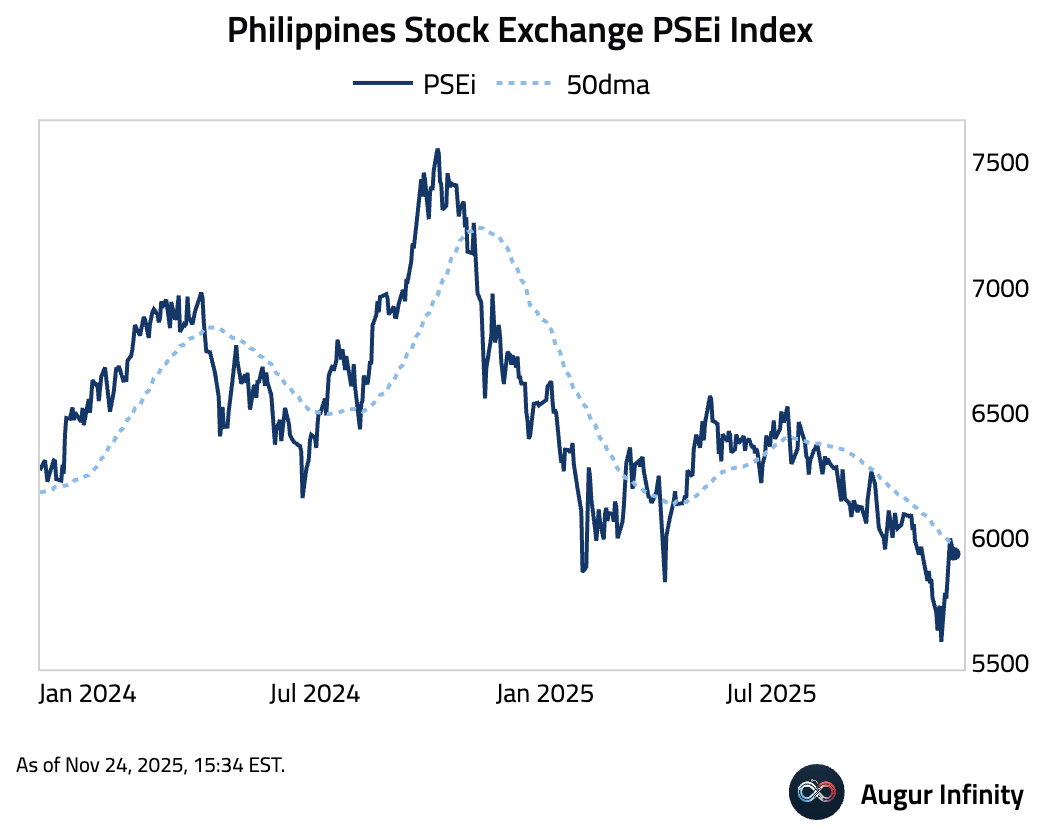
Equities
- Global equities advanced, buoyed by positive sentiment surrounding US–China relations. US markets led the gains, with the tech-heavy Nasdaq rising 2.7% and the S&P 500 up 1.5%. Chinese equities also rallied 1.6% following reports of a constructive phone call between President Trump and President Xi. In contrast, major European markets were mixed, with France and the United Kingdom finishing lower.
- The S&P 500 health care sector rallied to the highest level in over a year.
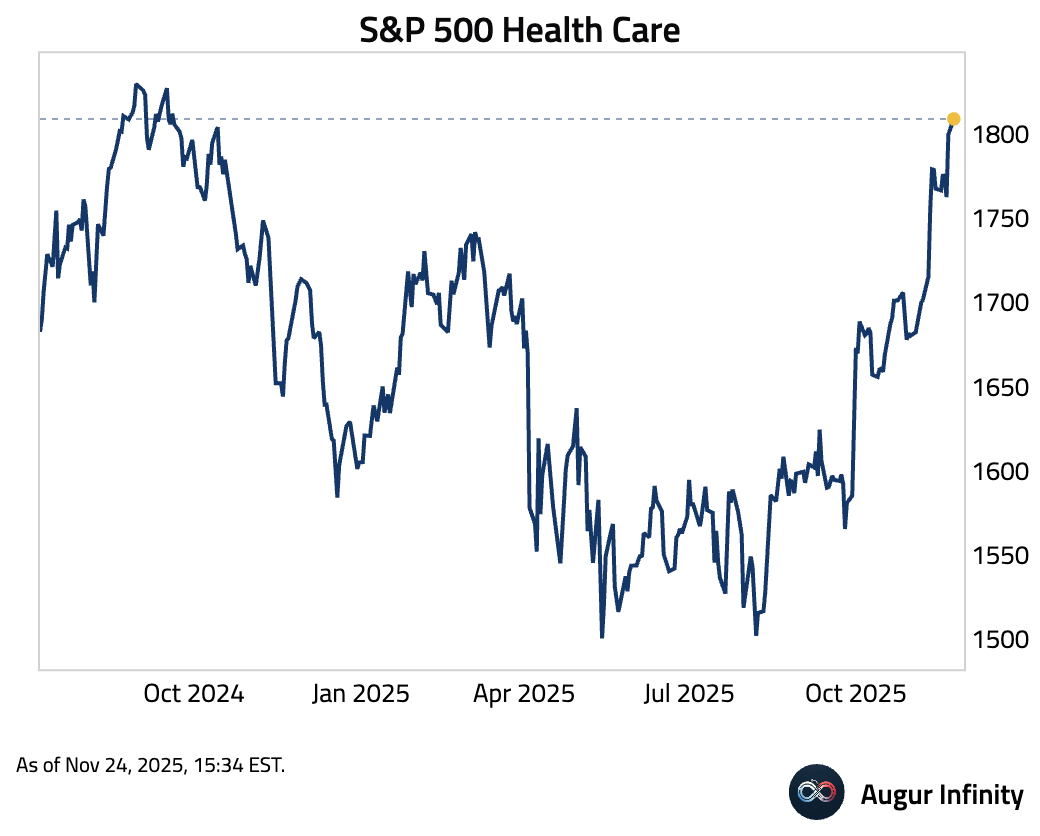
Relative valuation continues to improve, but remains low.
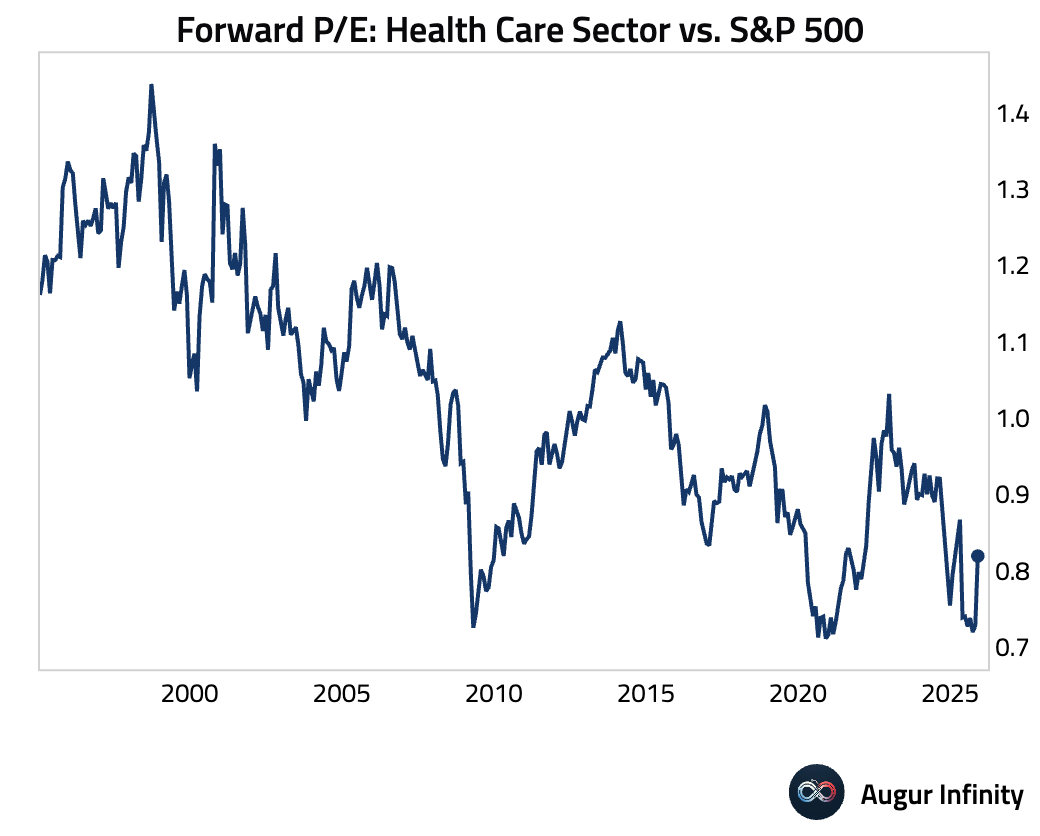
Health care was the most net-bought sector by Goldman’s prime brokerage clients last week. The sector saw its strongest long-buying in over five years, led by biotech.
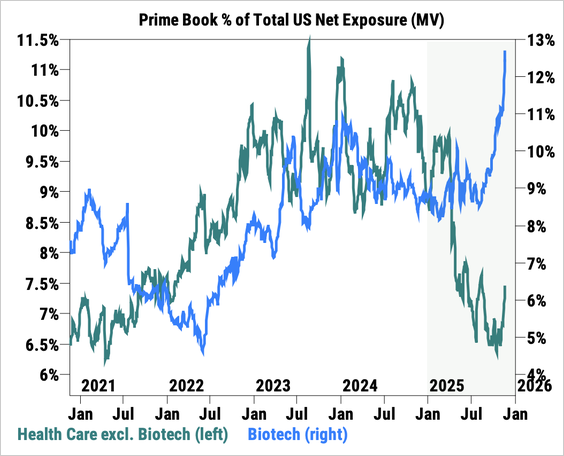
Source: Goldman Sachs
- S&P 500 Communication Services has reached an all-time high.
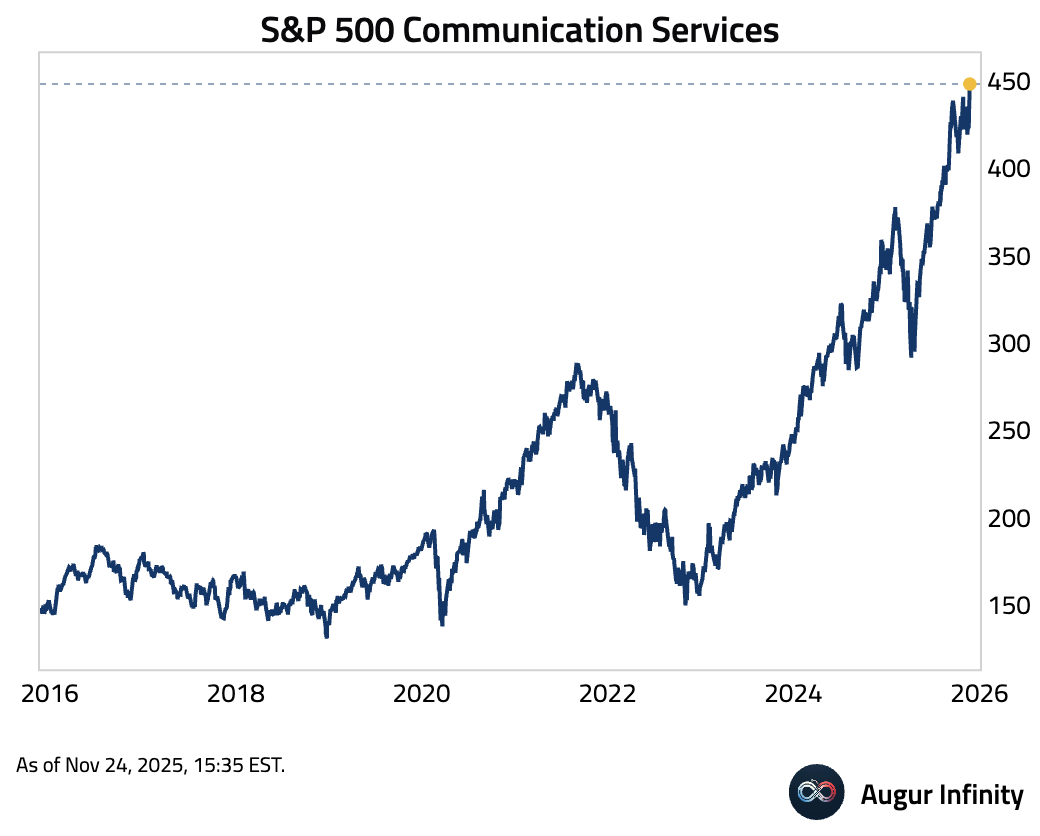
This is its 25th all-time high of 2025.
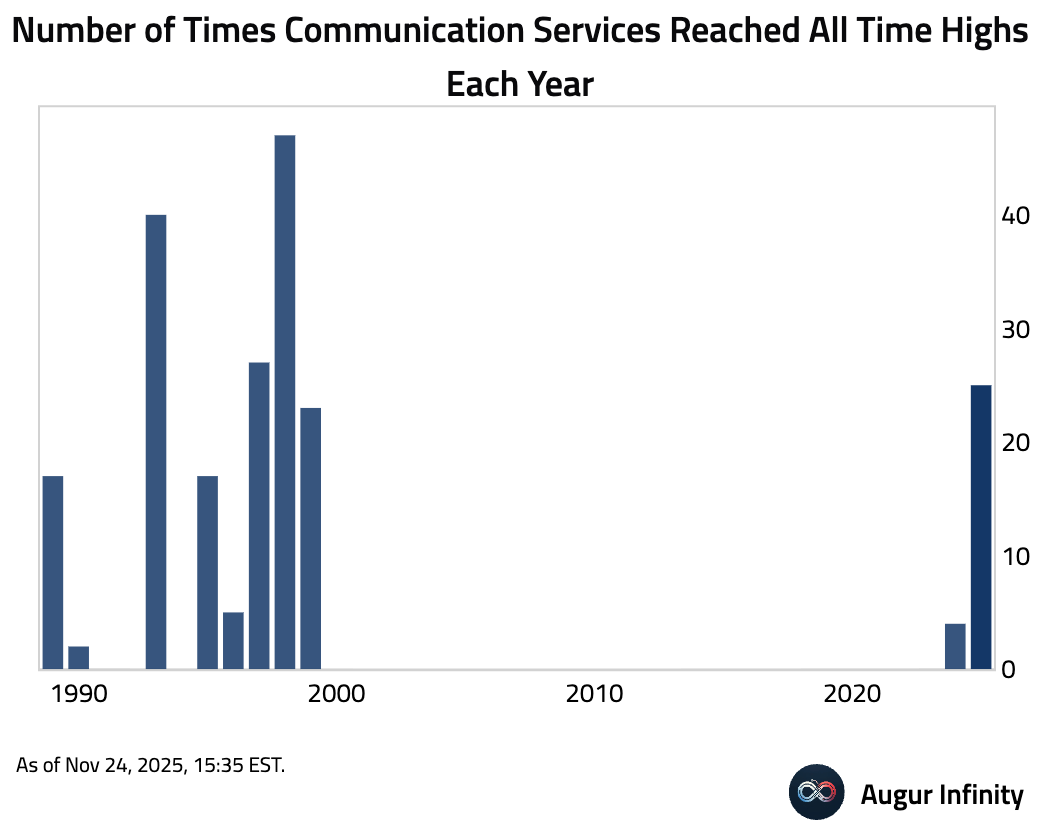
- Let’s look at a few ratios:
Value vs. growth closed above its 100-day moving average.
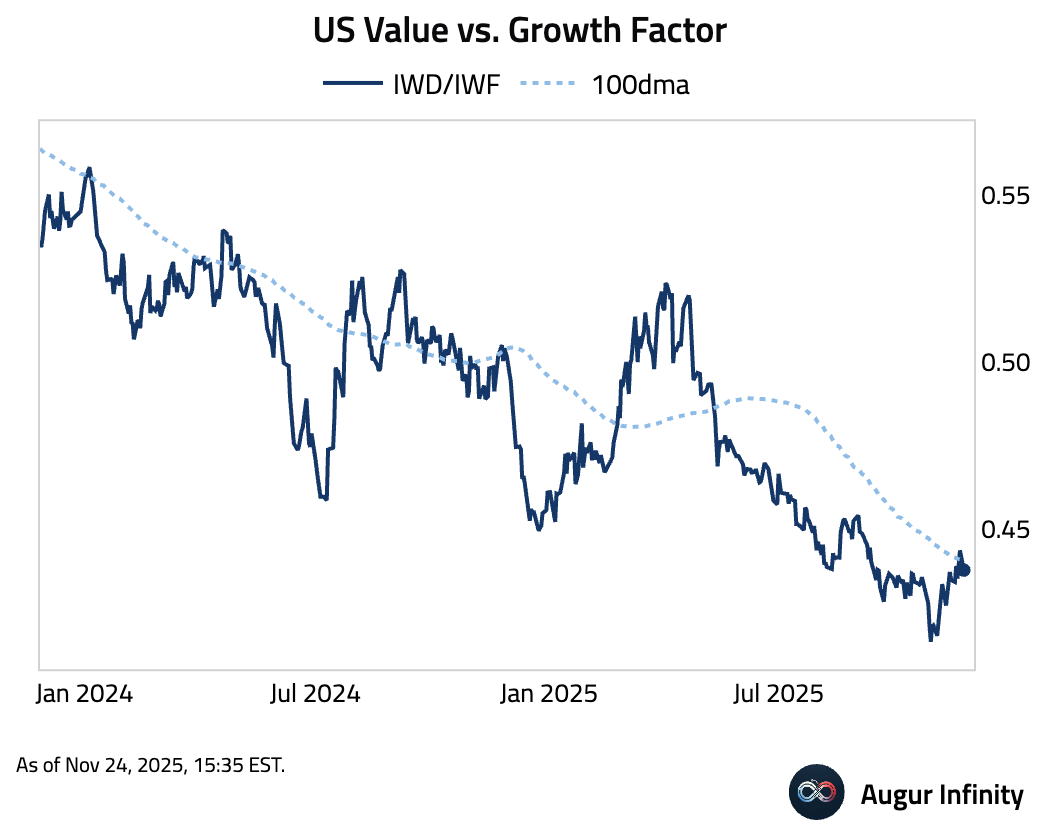
The ratio of small-cap to large-cap stocks jumped.
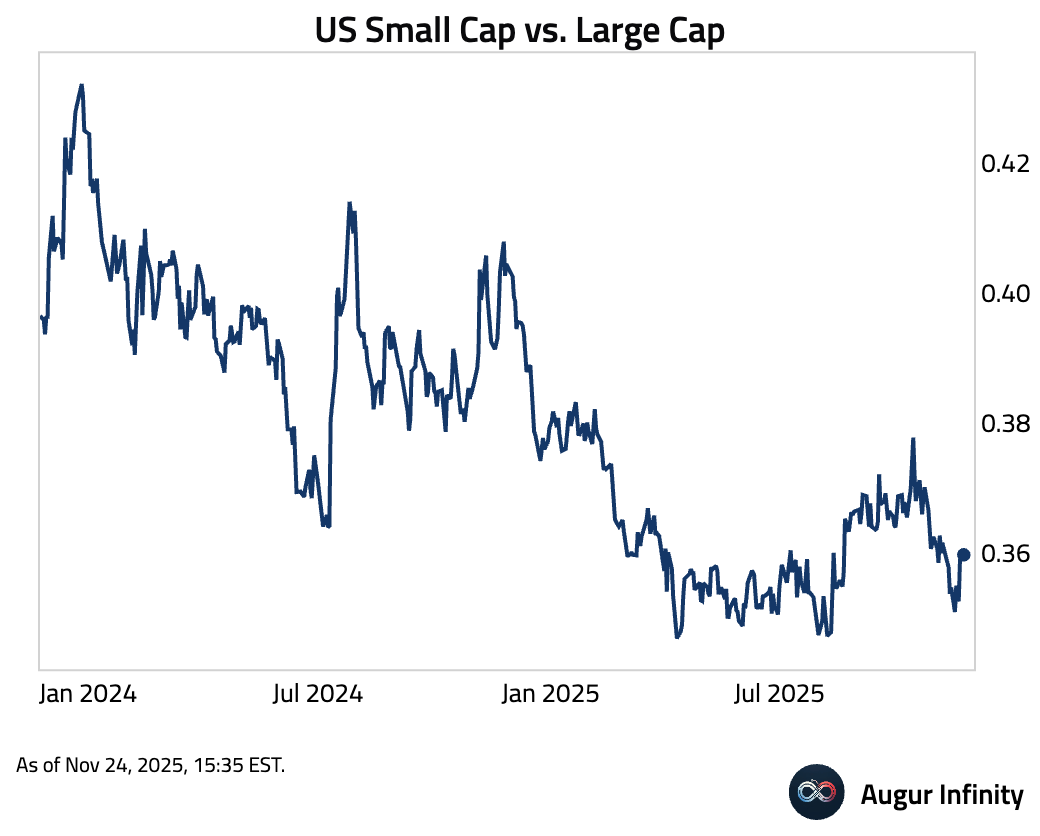
- Goldman’s Panic Index is elevated, signaling extreme stress in markets.
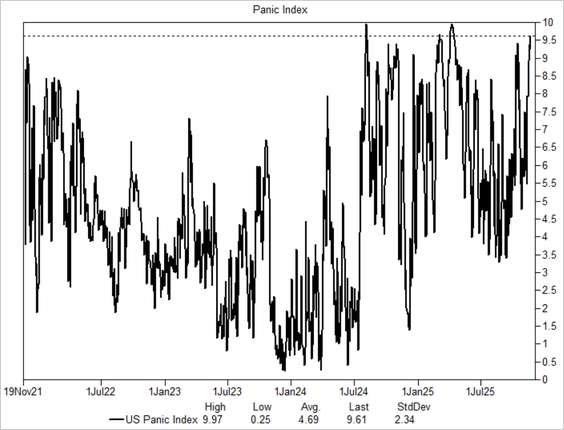
Source: Goldman Sachs
- Barclays’ Equities Timing Indicator (BETI) fell below -7 for the first time since August, a level that has historically preceded near-term S&P 500 gains with a 90% hit rate.
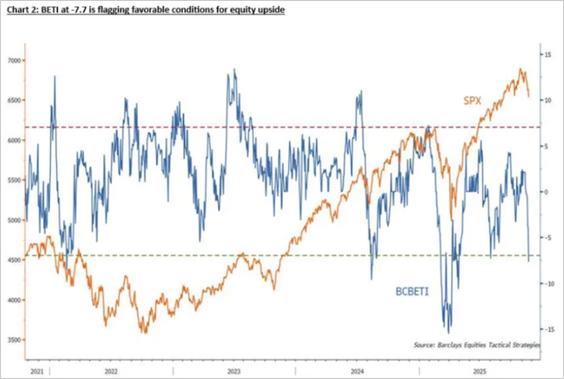
Source: Barclays via Bloomberg
- Thirty-seven percent of S&P 500 constituents are outperforming the benchmark index this year.
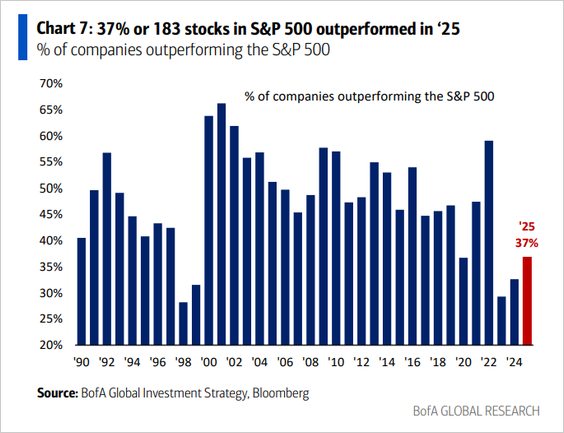
Source: Bank of America via @MikeZaccardi
- Alphabet overtook Microsoft as the third-largest company by market cap.
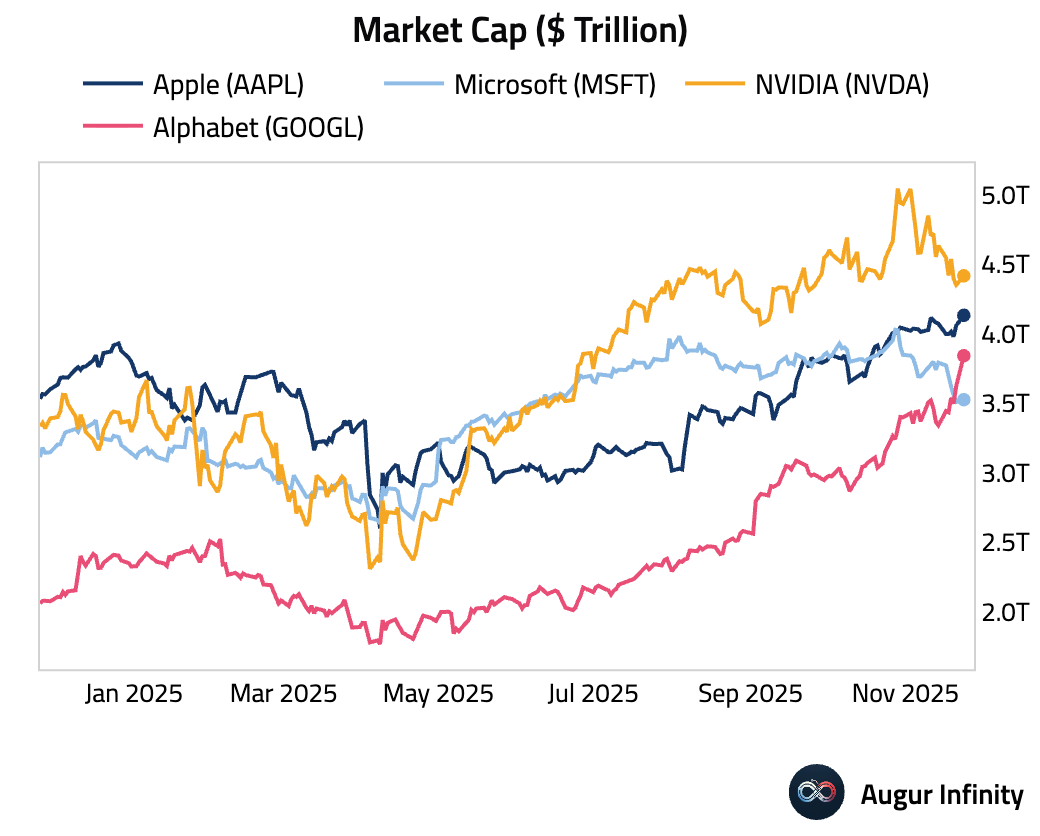
- US equity funds saw their fifth consecutive week of inflows. Bond inflows slowed, while money market funds continued to post outflows.
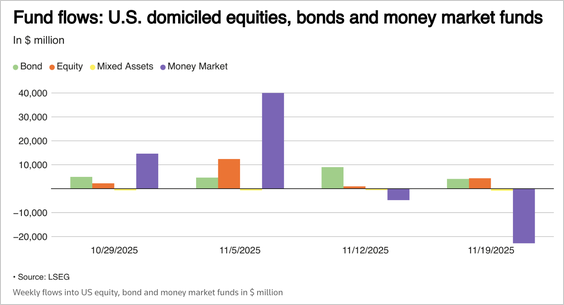
Source: Reuters
Rates
- US inflation-linked markets will employ the “fallback” mechanism for the first time due to the cancellation of the October CPI report.

Source: @economics
Inflation-linked Treasuries (TIPS) and inflation swaps use different fallback methods. For October, the TIPS fallback will use a higher index reading. As a result, TIPS issues maturing in January 2026, whose cash flows are tied to the October 2025 CPI, have outperformed comparable inflation swaps.
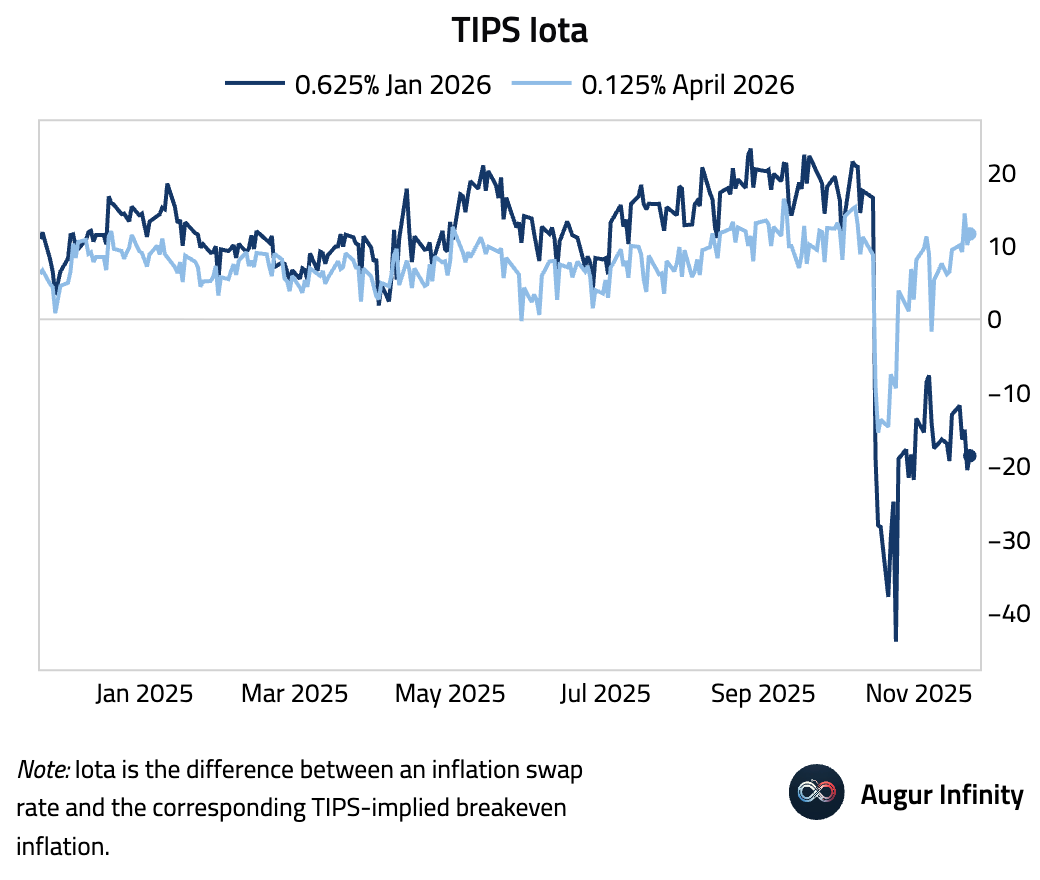
- Inflation swap rates continued to decline last week.
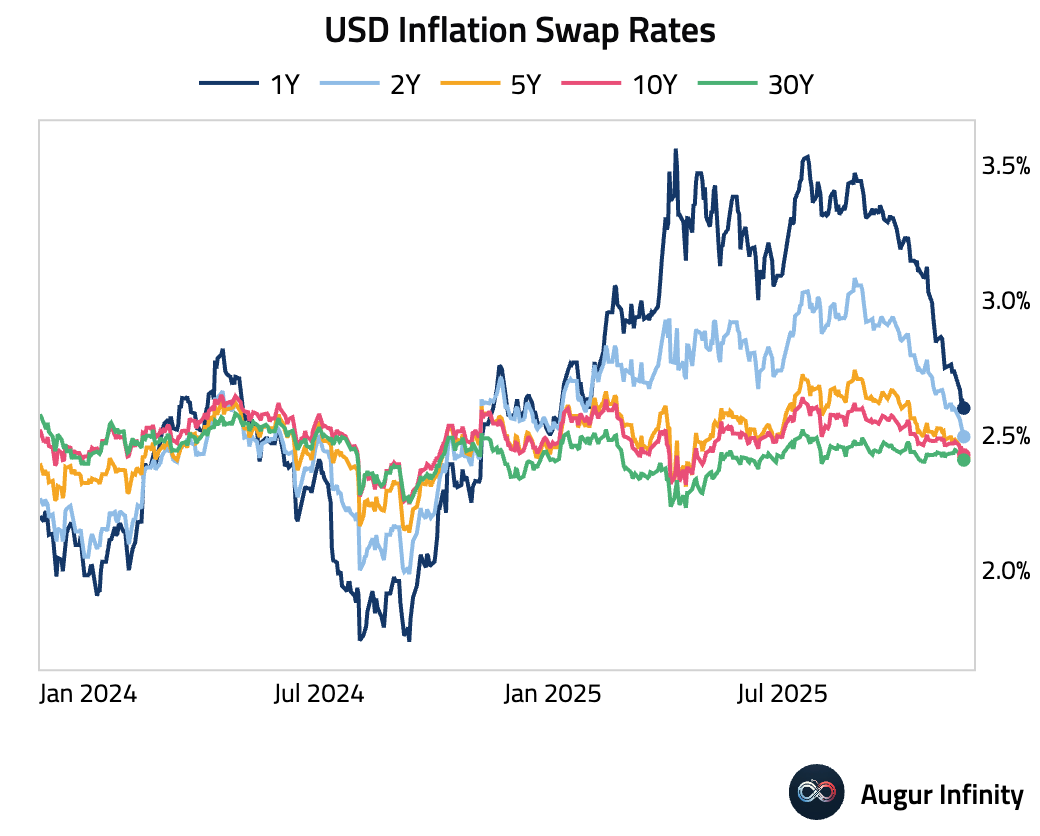
- Here are the year-to-date returns of US Treasuries by tenor—the belly has outperformed both the front- and long-ends of the curve.
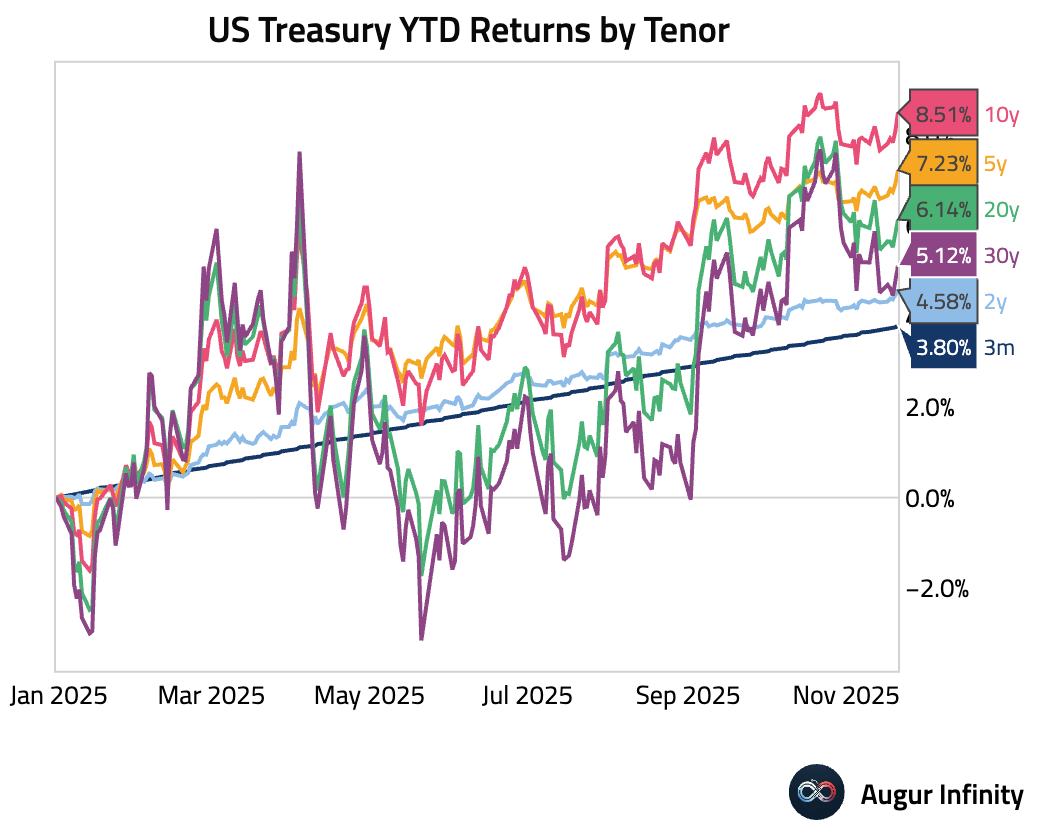
- The yield curve has steepened this month.
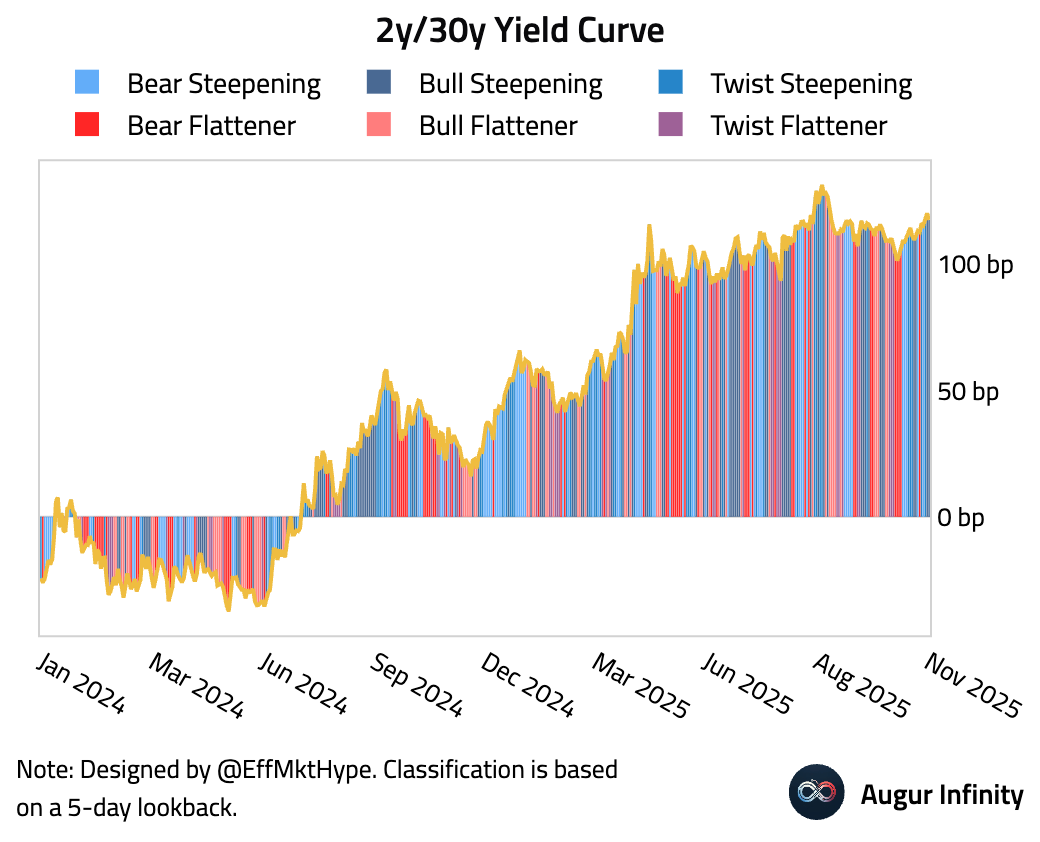
Interactive chart on Augur Infinity
- Treasury futures liquidity has improved.
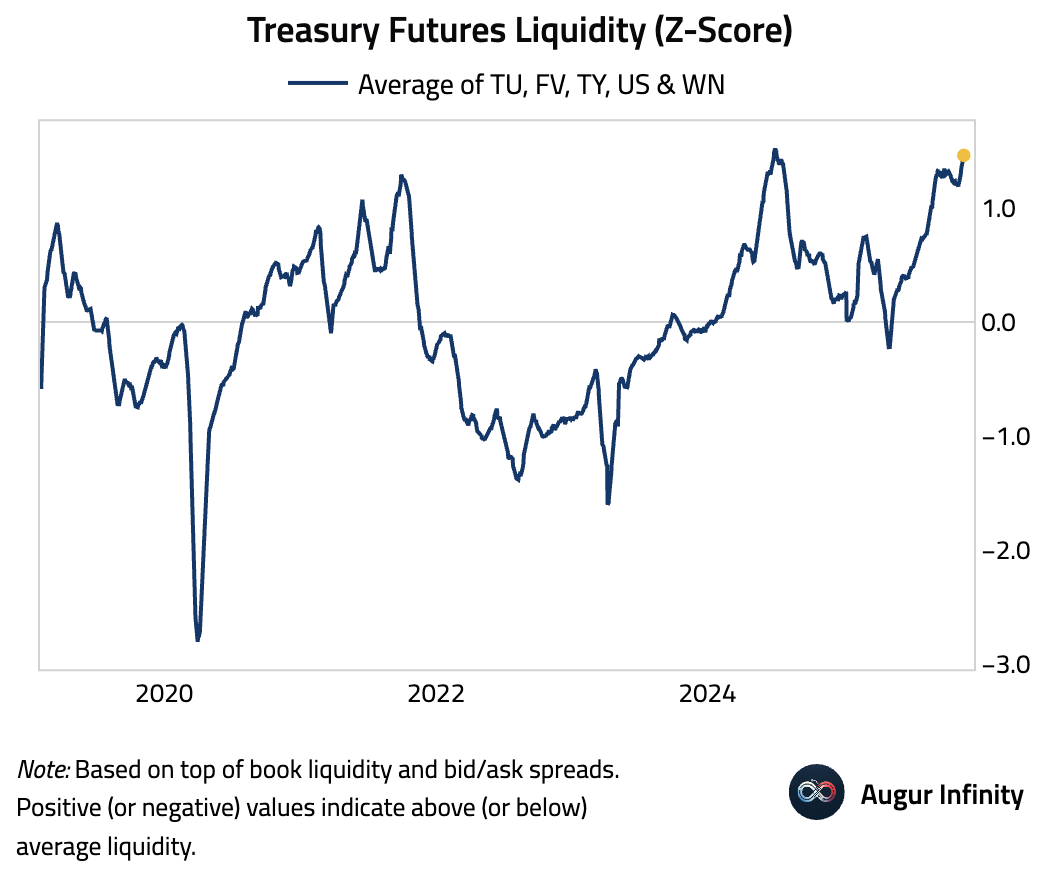
Energy
- The Baker Hughes US oil rig count rose to 419 in the week ending November 21, topping the consensus of 418.
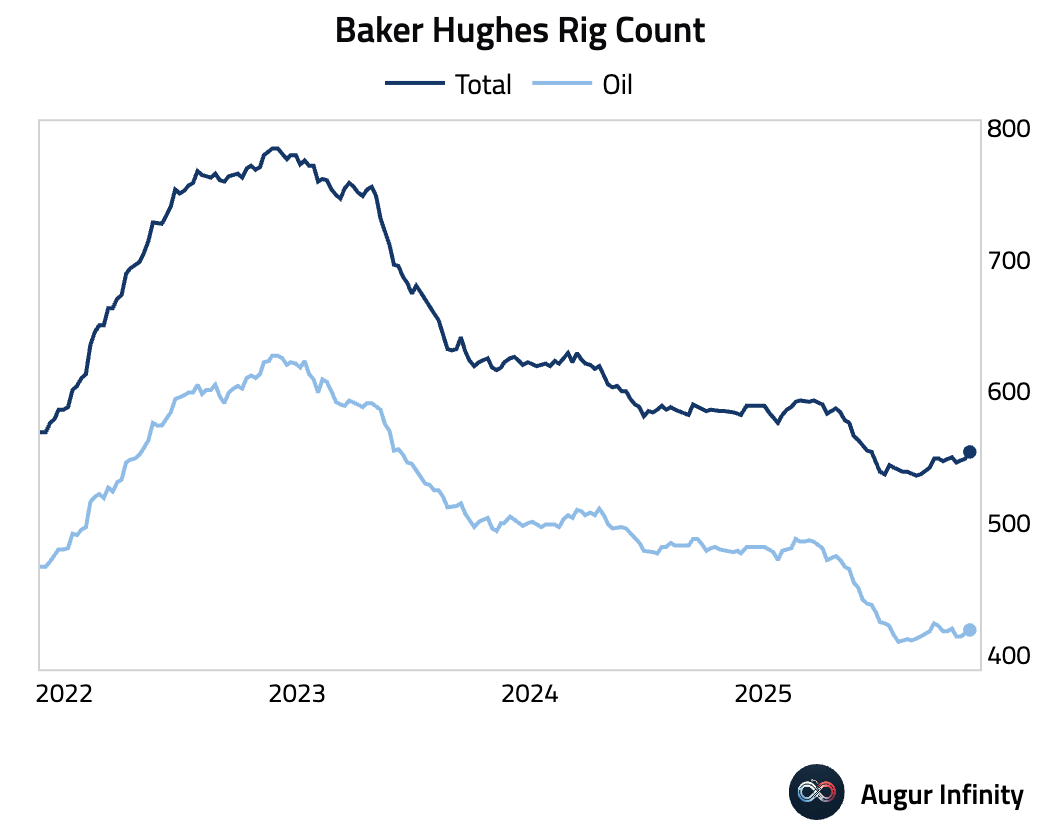
Commodities
- Orange juice futures declined sharply to their lowest level since February 2022, losing three-quarters of their value since the peak.
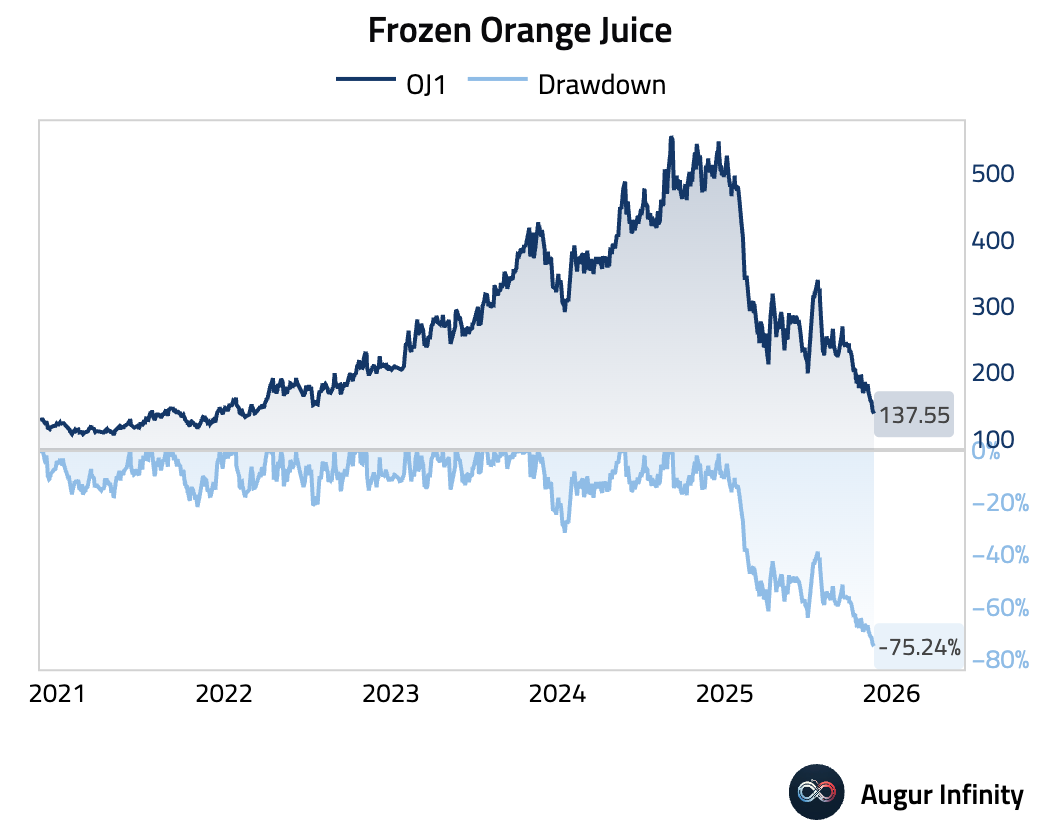
- Gasoline futures dipped below their 100-day moving average.
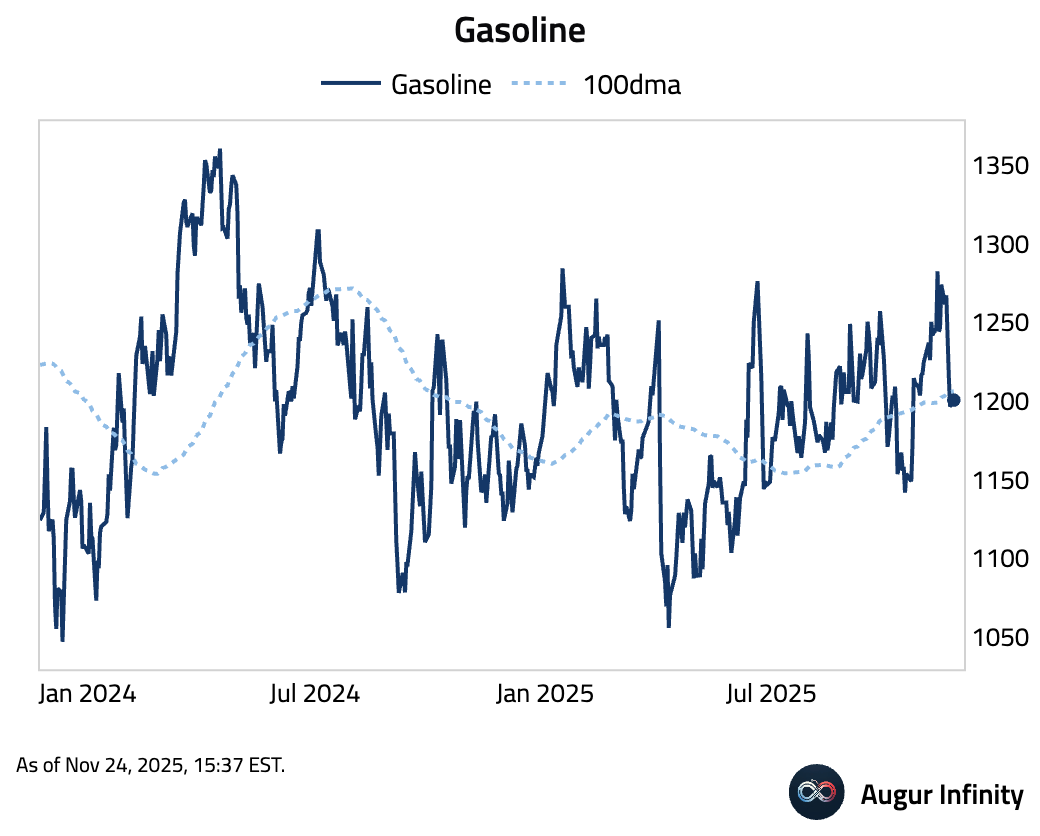
- Corn futures are below their 50-day moving average.
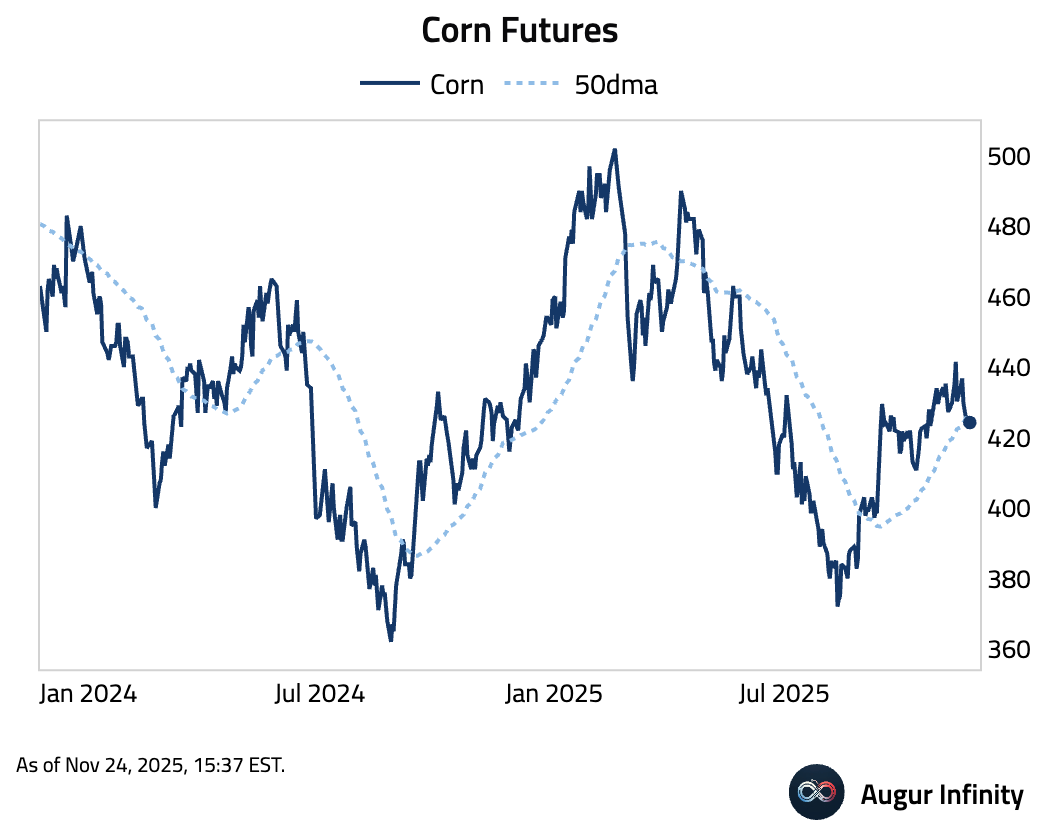
- Live cattle futures fell for the fifth session …
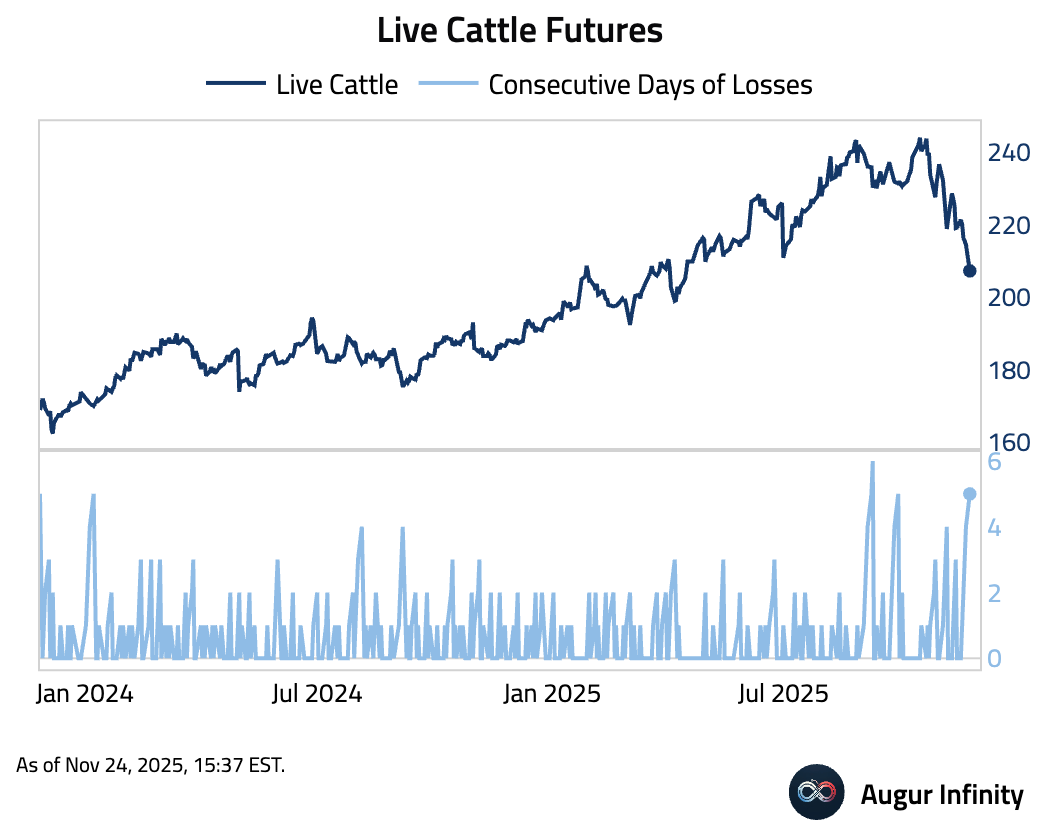
… and the roll-adjusted series fell below the 200-day moving average.
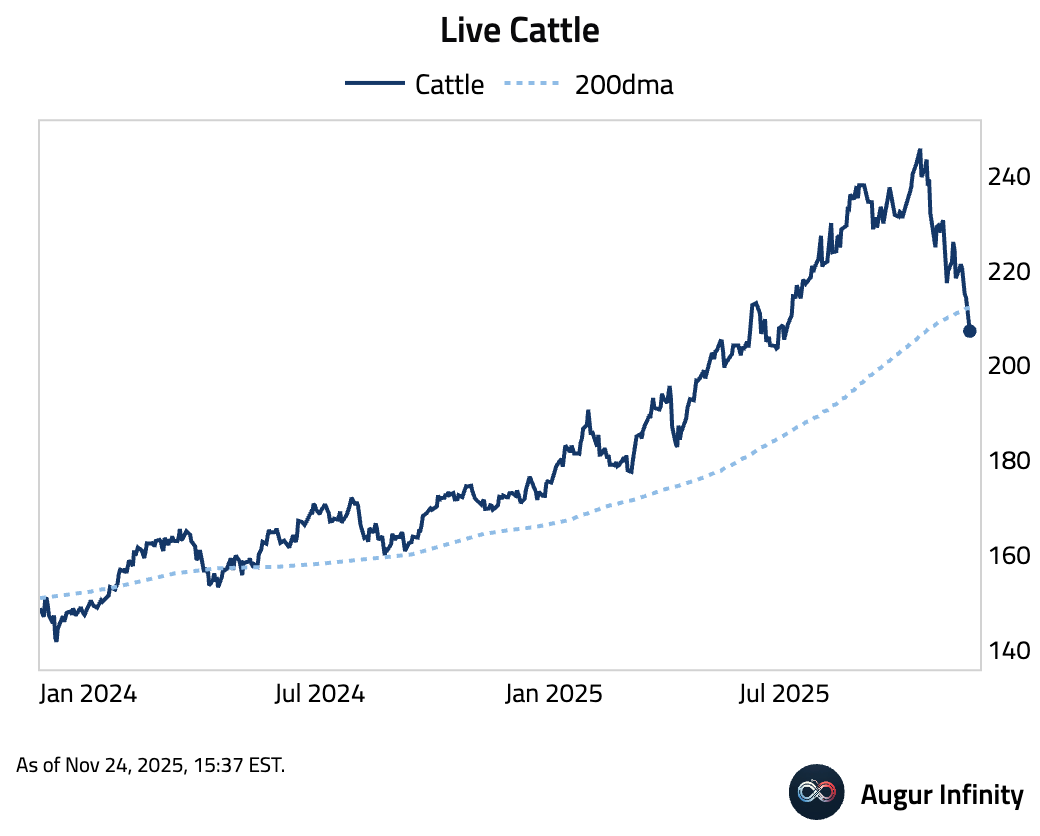
- Soybean meal had its worst five days since February.
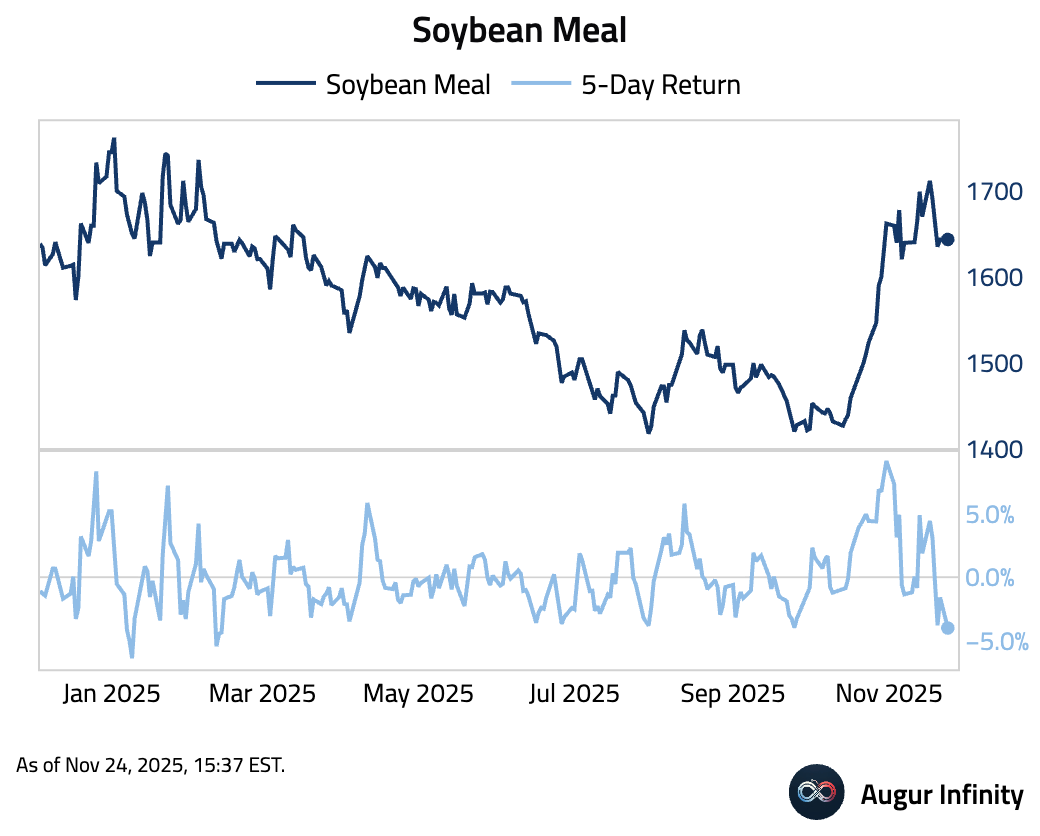
Cryptocurrency
- Although rebounding today, the month-to-date return of Bitcoin is the worst since June 2022, when Three Arrows Capital was ordered to liquidate.
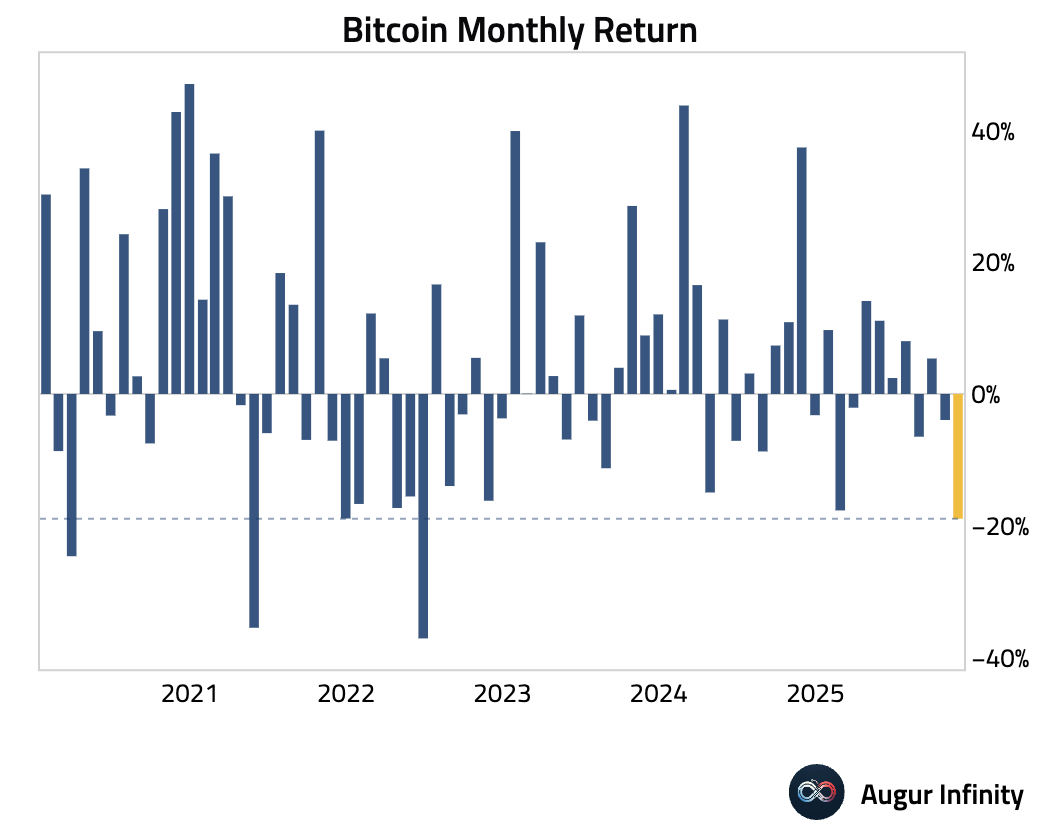

Source: @WSJ
Disclaimer
Augur Digest is an automatically generated newsletter edited by humans. It may contain inaccuracies and is not investment advice. Augur Labs LLC will not accept liability for any loss or damage as a result of your reliance on the information contained in the newsletter.

